#Oscar born to be used for other people’s gain and never given the chance to become something for himself………………
Explore tagged Tumblr posts
Note
I TOLD YOU I TOLD YOU
I think what’s worse is both Oscar and Noel’s objects that they gave to Arthur (letter and gun) have been used up at this point. But if you look at the objects themselves, the letter is completely burnt away while the gun is still present and could be reloaded in the future. Meaning that we could potentially see Noel again but we aren’t going to see Oscar since that’s who Arthur “chose to forget” in Part 40.
I don’t have a small melancholy thing that I wrote for Oscar after listening to that chapter if you want it. It’s at least mildly hopeful ;^;
I………. I like to still think…. That maybe he can come back…… cus Arthur wants to reconnect with Marie and she’s close to Oscar right ?????? RIGHT ??

#don’t say that don’t SAY THAAATTT#ask#malevolent spoilers#ILL DO SOMETHING DRASTIC#why does Harlan hate Oscar so much what did he even do.#FUCK !!!!!#Oscar born to be used for other people’s gain and never given the chance to become something for himself………………#I will end it all#what I’m not sure but it will end#also PLEASE SEND IT TO ME
97 notes
·
View notes
Text
Rose Puppetry Ch4: Rose Red
Summary:
A century ago or so, Atlas set out to conquer the world. Penny was built to be a spy, an infiltrator meant to find weaknesses in Vale’s defenses before the invasion.
She did. Then she fell in love. And rebelled against the kingdom that had created her.
Ch1. Ch2. Ch3.
.
Let us step away from the scene of a heartbroken mechanical girl as she learns of the fate that has befallen her love. Allow our attention to attend to events so long ago now they risk becoming history. Perhaps, to some, they already are. But the significance of these events should not be diminished or overlooked merely because of the time that has passed since their occurrence. For they shine out like a beacon star, guiding weary travelers home and igniting hope in their hearts.
The Kingdom of Vale is ruled by a kind and just king. One whose compassion is known throughout his own and every other kingdom. Some would consider his Royal Majesty, Ozpin, weak, for the softness of his heart. The wiser are able to recognize the guile behind his gaze. They know Ozpin’s kindness comes not from the naïveté of someone born into a comfortable and luxurious life, but from continuously choosing, after seeing the horrors of the world, to do everything in his power to make it better.
One of the greatest accomplishments of Ozpin’s reign, future texts will claim, is the establishment of his Huntsman Academy. It is not, as most would assume, an institute of military indoctrination like similar-appearing schools established in every single Atlas-controlled territory. The Huntsman Academy does not require its graduates to swear everlasting and unyielding loyalty to its patron royal. All it asks of them is that they should consider going out into the world and lending a hand whenever and wherever they are able.
Though not every single Huntsman or Huntress has chosen to align themselves with such noble goals, enough have that the public perception of the academy’s graduates has become one of legendary heroes. Enough of that perception is true that, when the first overtures of invasion and war spread across Remnant from Atlas, it was those same Huntsmen and Huntresses who willingly rose to come to the aid of their besieged neighbors.
Children in Vale have grown up on stories told of their brave protectors. Of course, the grizzlier details of how the battles go are kept away from their innocent ears. They’ll learn soon enough, the adults murmur amongst themselves. Let the young keep their purity for as long as they can.
Ruby Rose, in a way, was one such child. One of her earliest memories is sitting on her Uncle Qrow’s lap, clutching an expanse of silky white fabric in her small, chubby fists, and listening to him tell the tale of the most daring huntress who ever lived, her mother, Summer Rose. Like other children her age, Ruby was awed by the story given to her. Unlike them, she wouldn’t be so innocent by the end. For it wasn’t just a story, it was also a reason why her mother never came back home.
Ruby was never alone for long in that regard. As war crept closer to Vale’s borders, more and more of Ruby’s peers came to have tales of brave parents who never returned too. Her school even started a program for those orphaned or displaced. That’s how Ruby came to know her childhood friends, Ren and Nora.
Nothing she heard, however, could dissuade Ruby from her dream of following in Summer Rose’s footsteps. She told everyone she came across how she would become a hero, one who would save people and come back home. Not many believed her, but none could bring themselves to try and extinguish the small, flickering fire they saw within her. Such a hopeful thing was rare, and had to be protected.
It came to be that Ruby gained a reputation long before she was ever to be allowed near a battlefield. During her initiation to the Huntsman Academy, she stepped in front of one of her classmates, a young heir to the renown Arc family, Jaune, and defended him from bullies who thought him unworthy of upholding his family title. Rather than taking up a sword or a rifle, the commonest of weapons chosen among her peers, Ruby chose a scythe, one she crafted herself, to fight with. Most scoffed at that, or her perpetually cheerful demeanor. They called her brazen attitude, hubris, and her determination, silliness born of inexperience.
Then, they saw her fight. Saw the swift ruthlessness of her attacks. Only the most stubborn would refuse to change their minds about Ruby Rose.
Ruby could never bring herself to actually wear her mother’s old, white cloak—the only relic of the parent she never got the chance to know. Rather she commissioned one similar to it in all but one detail. Hers was ruby red. Others would make jokes about the cloak and the blood of her enemies, but never Ruby. For all she could be considered a brutal fighter, she was never a heartless one.
It is this attribute that made Ozpin take notice of her. He had seen many brilliant fighters pass through his academy before Ruby, but he found not many would reach a genuine hand out and help their defeated opponents stand up again. More than that, even less could inspire a spark of hope in those around them quite like she could.
Ozpin observed Ruby from afar all during her academy years. A plan began to form in his head of what he could do with her, but he did not wish to impose it on her. The ability to choose is something he regarded too highly to take away from another. So, he waited, and watched. When Ruby graduated, and fully came into her own, that’s when he approached her.
War hadn’t come to Vale yet, but it was going to. Ozpin had attempted prevention with peaceful overtures, but he knew they wouldn’t last for long. It was time to make preparations for his people.
It is said, once upon a time, there existed four great Relics in the world, one in each kingdom, of untold power. Not many believe the tales anymore. Years have passed without sighting or word of such great devices. If they truly exist, people wonder, why haven’t the kingdoms’ monarchs used them to save them from Atlas?
In truth, attempts were made.
The rulers of Mistral regularly sought guidance from the Lamp of Knowledge. It is what they learned from asking it questions that most aided them in forging their treaty with Atlas. Though they kept war from their doorstep, they now live in constant fear of it returning. They have used up all three of their questions and have to wait a hundred years to have another three.
The last Vacuan King rode into battle against Atlas with the Sword of Destruction firmly held aloft in his hand. He cut down innumerable automated foes with its power. For a time, it was believed he and the sword would single-handedly push back the invaders. But utter Annihilation proves tricky to control, and there are rumors that the destruction of Vacuo’s oasis may not have been completely done by Atlesian hand.
The Staff of Creation was once the prized possession of Atlas. The only reason it did not remain so was the actions of a simple soul. An assistant in the palace’s kitchen, with the aid of his family, stole the staff and smuggled it out of the kingdom. No one in Atlas or Mantle knows where Oscar Pine went, but they do know what happened to his family at the hands of Hazel Rainhart, for refusing to give his plans up.
Ozpin remembers the day Oscar came to him clearly. The worry and fear in the young boy’s face. The knowledge of everything he had given up to get such a powerful relic away from where it, or at least what remains of it, would be abused and corrupted weighing down on him. Ozpin had done his best to help Oscar, but there are some wounds that no stranger can help heal. The only thing he’d truly been able to do was swear he’d protect what remains of the Staff of Creation from further harm. And so he had done his best.
The Staff’s condition continued to deteriorate with each passing day. Ozpin couldn’t say he knew exactly what the General King of Atlas had done to it. How he’d managed to split its crystal, or what he’d done with the missing part. Ozpin only could know of the results, the broken state of the relic in his kingdom that did not truly belong there.
For the first time of his reign, Ozpin consulted Vale’s relic, the Crown of Choice, in the hopes it could help him understand the best course of action. It didn’t. The Crown simply showed Ozpin the decision he already knew he was going to make.
He could not repair the Staff of Creation. Not without recovering its missing piece from whatever fate had befallen it. What Ozpin could do was reforge its remains into something new. A final act of creation by the broken relic, and a mechanical device known as the Silver Eye was born.
The Silver Eye did not function like the relics. The only way its power could be used was if it were bonded to a person. Someone chosen and deemed worthy of the monumental task of protecting and preserving life. Ozpin made the choice, and he chose Ruby to be its guardian. She accepted.
Tragically, Ruby, to the present day, has not gotten the chance to use the Silver Eye. It was successfully bonded to her and turned her pale blue eyes the most brilliant of silvers. Yet, before she could full understand it, her girlfriend’s past caught up to her and stole them both away.
Ruby knew who Penny was before she came to Vale. On the night they admitted their love, Penny told her everything about where she came from and what her mission was in Vale. Ruby held Penny as she admitted that what she was meant for and what she wanted to be were two entirely separate things. Ruby promised Penny she loved her regardless. She would help her. They would forge a new future together.
The chance was stolen from them.
Later, Ruby wouldn’t really remember the attack itself. Her recollections of the event, and most of the time directly following it, would come to be vague and murky at best. The one thing that would come back to her would be being forced to kneel before the General King, as he gazed down at her like a prize.
Long had Ironwood desired to have one of the Huntsmen or Huntresses of Vale. What better weapon was there, he thought, than one plucked directly from the enemy itself? What had a better chance of outsmarting Vale’s forces than one of their own? Of course, she would need some convincing, but that was hardly an issue.
Once upon a time, Ironwood had sliced off the hand of the King of Vacuo and stolen the Sword of Destruction from its failing grasp. His kingdom may have lost their original relic, but that hardly mattered to the General King. Not when he’d gained something that could aid his kingdom’s conquest far more than it.
And Ironwood’s scientists had been successful in manipulating the powers of Destruction. Watts, in particular, was able to augment soldiers considerably with the dark substance the sword provided them. Controlling their newfound Grimm forces did prove difficult. Until the forging of the Salem Device, that is. A mysterious, dark, twisted crown that afforded them such an ability as to command the forces of Destruction.
It was never really a question of if they’d transform Ruby, their prized, prisoner huntress, into one of these denizens, so much as it was a matter of when. And so, soon after her capture, Ruby Rose was lowered into one of the deep, dark Pools of Annihilation, and Destruction consumed every inch of her it could.
But, it should be known, Destruction could not consume all of her.
For even then, unknown to the Atlesians who watched her transformation, the Silver Eye remained with Ruby.
It is slowly beginning to wake up.
#rwby#rose puppetry#nuts and dolts#ruby rose#whirls writing#in honor of my birthday today#have a fic update
17 notes
·
View notes
Note
By any chance have you seen RWBY Volume 7? What are your thoughts?
Hello! Sorry for the long wait!
I have watched it and I will gladly share my thoughts!
However, I would like to make clear that I am more a casual viewer than a hardcore fan, so I have surely missed many details.
Personally, I have really enjoyed volume 7 and it is one of my favourite volumes so far. I have especially liked it because of two characters I ended up loving for completely opposite reasons. These characters are Ironwood and Penny.
I love Ironwood because he is a character who passes the majority of the season walking in perfect equilibrium between being a possible ally and a possible antagonist. At one point he seems to grow in the right direction, but immediately later he regresses and ends the season as a full fledged villain.
All in all, Ironwood keeps exhibiting a contradictive behaviour throughout all the volume. He wants to tell the world the truth and has informed a small group of people he claims to trust. This seems to be almost in opposition with Ozpin who has kept even his most trusted comrades in the shadows about important truths. However, Ironwood’s ambition to tell the world is in conflict with him being too scared to share the information with people he has to work together with. This is a contradiction with which Ironwood will fight for the whole season and against which he will eventually lose.
Ironwood, just like Lionheart before him, loses to fear. However, he does so in a completely different way than the late headmaster. Lionheart was so scared to die that he betrayed Ozpin and allied himself with Salem. Ironwood does not want to switch sides and he wants to stop Salem like everyone else. However, his wish to do so makes him obsessive and paranoic. In short, Lionheart did not fight his fear, while Ironwood fights it too much and would want for it to disappear. The point, however, is that fear will never completely disappear and human beings must learn to live with it. This is why symbolically Salem can’t be killed. It is because fear can’t be conquered with simple might and prowess. However, this is what Ironwood is trying to do. He refuses to admit that he is scared and keeps trying to suppress his fear and to make it vanish by gaining more and more control and this of course backfires spectacularly until in the end Ironwood completely loses control.
He loses the leader of the Ace Op who died because of a fight which was avoidable. He loses the support of people like RWBY, JNR and Oscar who were genuinelly trying to help him. He loses the alliance with Robin and the rest of Atlas and finally he loses both Penny and the Winter Maiden. At the end of the volume Atlas is divided with two groups fighting each other while they should overcome their respective differences and work together. Ironwood’s paranoia, inability to face fear and to trust others are the reasons of this. It is probable that he will become more and more isolated and will be left behind by more of his own comrades in the next volume.
All in all, he is a very tragic character and it is very sad to see him spiral out of control especially after he has shown the potential for growth when he accepted to tell Robin and Atlas. That moment led to several conflicts being solved and made so that two of Salem’s most trusted agents could be neutralized. The moment Ironwood really starts facing his insecurities and fear and opens up to others he is rewarded, but his fear blinds him and does not let him realize the positivity of the results obtained. A leader should be able to make of the people around him a strength, but Ironwood does the opposite and ends up seeing others as his weakness.
Penny has gone through an almost completely different journey. Penny’s problem is that because of her nature she has been objectified by others since she was born. She has been created with a specific objective in mind aka the idea of building a protector. Penny has been destined to fight and to become Mantle and Atlas agent since before she was born and we have seen how she has been struggling with this and with her lack of freedom since the beginning. Before being accidentally killed by Pyrrha Penny states her plan of running away and during this volume she shows how much she wishes for normal human relationships. In her words she would like to find a way to do both what she wants and what she must.
Throughout the series Penny is constantly referred to as either a weapon or a monster and she ends up a victim to others’ schemes multiple times. Emerald has her killed during the tournament to spread anger and panic. Tyrian basically uses the same trick, but this time Penny is in the role of the perpetrator. At the same time, her boss clearly does not see her as a person and states that Penny is under “his complete control”.
This behaviour is interesting as well and once again shows Ironwood’s contradictive nature and his inability to truly understand the ideals he believes in. As a matter of fact Pietro explains that he created Penny because he wanted a protector with a soul. He even stated that his research was different from the others and that he was surprised it was the one which caught Ironwood’s eye. We do not know why Ironwood preferred Pietro’s ideas over the others, but what we are sure of is that by the time of the volume he has completely lost sight of what he could have potentially seen in that research. As a matter of fact he is suffocating Penny’s soul which is instead trying to emerge. Penny’s ideas and her feelings become more and more apparent throughout the season until they affirm themselves in the finale. Penny does not want to repress her feelings like Ironwood, the Ace Ops and Winter. She wants to affirm them and to fight for them. In the end it is her good heart and her iron body which lead her to the Winter Maiden. She manages to reach her and to receive her powers both because of her human soul and because of her robot body. Because of this, her becoming the Winter Maiden is an affirmation of her personhood and identity. Her new role is also a way to reconcile what she must do with what she wants to do as well.
All in all the volume shows how difficult it is to trust people and how trust is something which needs to be built and maintained. It also shows the futility of trying to repress one’s feelings.
This is especially shown in the fight between the Ace Ops and RWBY. As a matter of fact the Ops are clearly slowed down by her feelings both positive and negative towards RWBY. It’s clear, thus, that throughout the season the two groups have grown fond of each other and the sudden antagonism between their members leads to different kinds of feelings in the Ops.
Elm and Harriet reacts with anger and a sense of betrayal, while Marrow shows indecisiveness and a lack of resolutions. All these emotions clearly disturb the Ops’ performance.
To be more specific Elm’s anger disturbs her teamwork with Vine. As a matter of fact she lashes out at him and projects on him her sense of frustration. This is in contrast with Blake and Yang’s teamwork. This specific confrontation shows how much Yang and Blake’s relationship and closeness has grown throughout the season and how much they complement each other even more than the Vine and the Elm of the fable.
Harriet’s anger and hotheadness leads her to relentlessly attack even when she can’t move her arms and in the end she loses because of her own speed just like the hare of her fable.
Finally, the way Marrow loses is similar to what happens to the protagonist of The Dog and its Reflection. As a matter of fact the dog of the fable is running away with meat in its mouth, but at one point it sees its own reflection in the water. The dog thinks that the meat in the mouth of its reflection is bigger than its and opens the mout to take it, but lets go of its trophy in the process and loses it. Marrow ends up doing something similar since he uses his semblance against Weiss, but has to let go of her in order to use it again against her Knight. All in all, the motif of reflections in Marrow’s fable is interesting when combined with Weiss’s own motifs since her character song is called Mirror Mirror.
All in all, it is as if the confrontation underlines how Weiss and the Knight are nothing, but two different aspects of the same person, two manifestations of who Weiss is. Marrow can’t properly face both as he can’t face his own contradictions and indeciveness, while Weiss is making progress in accepting who she is, her own different sides and in reconciling them. This is why she was not fazed when she was stopped by Marrow and could easily keep on fighting with her Knight. Marrow can’t face his own reflection, while Weiss is becoming more and more able to face hers.
All in all the Ace Ops insist on keeping one’s own feelings in check, but this makes them vulnerable when their feelings become explosive because they are not able to properly control them and to channell them.
Adding to what I have said about Weiss I think that in the next volume she should have a more prominent role since this is her country and where her family is. I was also surprised at how easily Weiss’s father was taken care of. All in all Weiss had already grown strong enough to win against him, so I am wondering if the real struggle for her will be about bringing her whole family back together. As for now her family is a mess with her mother being passive, her brother probably acting as a jerk to attract Weiss’s attention and Winter working with Weiss’s enemy. Weiss’s development as for now has been about growing distant from his father’s mentality and influence, so it is possible that what is being asked of her now is to bring the rest of her family back together, so that it can be rebuilt.
These are my major thoughts as for now. Other than these I liked Oscar’s development, Robin and I keep loving Neo and hoping for her to be given more depth. I am also curious to see if something interesting will develop with Mercury and Emerald, but they were not present in this volume.
Thank you for the ask!
#rwby#rwby volume 7#james ironwood#penny polendina#team rwby#ace operatives#rwby meta#asksfullofsugar#opheliaramirez
24 notes
·
View notes
Photo
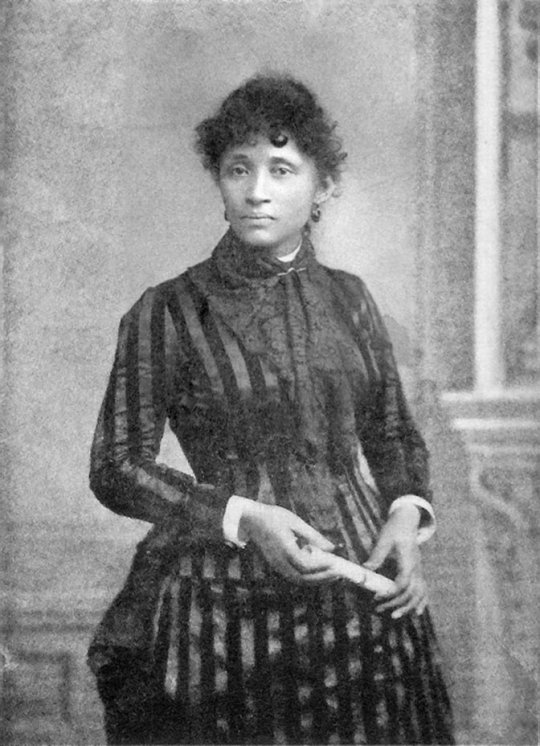
Celebrating Black History in 2020! Lucy Parsons (1853-1942) - Staunch Anarchist, Revolutionary Activist
Early Life
Little is known about the early life of Lucy Parsons. She had an African American, Native American, and Mexican ancestry. She was born in Texas around 1853, during the Civil War Era, and it is likely that her parents were slaves. During her lifetime, in order to disguise her racial origins in a prejudiced society, Lucy went under many surnames. She often went by Lucy Gonzales, denying her African American roots, while claiming her Mexican heritage as the cause of her dark skin tone.
Around 1870, while living with a former slave named Oliver Gathings, Lucy met Albert Parsons, who would soon become her husband. Their marriage, however, was probably not legal, since miscegenation laws (laws forbidding marriage or cohabitation between white people and members of other races) prevented interracial marriages at the time.
In 1872, while the South was instituting repressive Jim Crow segregation laws, Lucy and Albert were forced to leave Texas due to their political involvement. Albert had worked diligently on registering Black voters and was shot in the leg and threatened with lynching. He and Lucy also felt threatened because of their interracial marriage.
Lucy and Albert arrived in Chicago in 1873, where Albert quickly found a job as a printer for the Chicago Times. This was a difficult time for working people all over the nation, especially in industrial cities like Chicago, because the country had fallen into a depression, leaving millions of people unemployed. The passing of the Contract Labor Law of 1864 allowed American businesses to contract and bring in immigrant laborers. A large, unskilled pool of workers grew in Chicago, which drove wages down. The laboring population, however, was being radicalized by the introduction of socialist and anarchist ideology to the United States.
Inspirations and Actions
In the summer of 1877, one of the greatest mass strikes in US history took place in response to the depression. Rail workers all over the country joined the picket line to protest wage cuts enacted by the Baltimore Ohio Railroad. In July, the strike moved to Chicago, where rail workers waged a militant battle. They derailed an engine and baggage cars and engaged in sporadic battles with police who attempted to disperse them and break the strike. Albert addressed crowds of up to twenty-five thousand people to promote peaceful ways of negotiating. This helped to bring him into the forefront of the anarchist movement in Chicago.
Because of his involvement in organizing workers, Albert was fired from his job at the Times and blacklisted in the Chicago printing trade. Lucy opened a dress shop to support their family, and, with her friend Lizzie Swank, hosted meetings for the International Ladies' Garment Workers Union (ILGWU). Lucy found herself juggling her career, as well as her political work, which was becoming more and more involved.
Lucy began to write for many radical publications, including The Socialist and The Alarm, an anarchist weekly published by the International Working People's Association (IWPA), which she and Albert had helped found in 1883. She had little sympathy for bosses who were paying their workers substandard wages. Her most famous article, "To Tramps," advocated "propaganda by the deed," a philosophy that held that only violent direct action or the threat of such action will ultimately win the demands of the workers. She was often considered more "dangerous" than her husband because she was so outspoken in her beliefs on the rights of the poor. Lucy was also threatening as a militant and radical woman who refused to assume the role of a homemaker.
May Uprisings
By 1886, it was becoming exceedingly difficult to keep the lid on the kettle. People across the country were boiling up in resistance to their working conditions and the squelching of their union activities by authorities. Across the US, people were calling for an eight hour work day, proclaiming, "whether you work by the piece or work by the day, decreasing the hours increases your pay." May 1st was chosen as the date to kick off the official movement for the eight hour day.
The strategy was this: workers would demand eight hours work with no cut in pay, and if this was received with opposition, they would strike. As a result, 350,000 workers across the nation walked off their jobs to participate in a mass general strike. Forty thousand workers struck in Chicago, creating a whirlwind of radical activity and convincing prominent radical leaders, such as Lucy Parsons, that the country was ready for a mass workers' revolution.
On May 3rd, a strike at McCormick Harvest Works in Chicago became violent as police fired into a crowd of unarmed strikers. Many strikers were wounded, and four were killed. Reacting to the events, radicals called a meeting in Haymarket Square to discuss the situation. The peaceful meeting was disrupted by police, and an unknown figure threw a bomb, killing one officer. One of the worst violations of US civil rights occured over the next few days, as police swept the town looking for any and all anarchists and radicals. Although he was not even at Haymarket Square that day, Albert was one of the eight men accused of the bombing. He went into hiding until the first trial date, at which point he walked into court to turn himself in and sit with his comrades.
During this period, Lucy was under constant surveillance by the police. She was arrested under the slightest suspicions that she knew the whereabouts of her husband. Although authorities looked upon Lucy as a threat to the status quo, she was never charged with conspiracy in the bombing. The rationale of the authorities was that the chances of a woman being convicted of murder and receiving the death penalty were too slim, and if a woman were to stand trial with the men it would decrease the chance of the men receiving such a harsh conviction. Women were not believed to be capable of such radical and militant action.
The Haymarket Affair
The movement for the eight hour workday was one of the most difficult struggles for laboring people in the United States. It is filled with stories of huge protests which were broken up by police and Pinkertons (private security). Many people were maimed and killed before demands to shorten the workday were finally met. One of the most famous events in the history of the eight hour struggle was the Haymarket Affair.
In response to a huge protest at a mill in Chicago in which a few workers were killed by the police, local radical activists organized a meeting at Haymarket Square in downtown Chicago. Over 2,000 people showed up to hear the speakers. Even the Mayor of Chicago appeared, and reported that the event was peaceful. However, after the Mayor left and the meeting's numbers dwindled, a huge army of police marched towards the crowd and gave them an order to disperse. During the confusion, an unknown person threw a bomb into the crowd of police, killing an officer. A riot broke out in which both workers and police were injured and killed.
The days that followed were bleak, as nearly every anarchist and socialist in town was arrested and detained. Many radical anarchist papers were illegally shut down, and homes, meeting halls, and offices where outspoken supporters of the eight hour movement lived and did political work were raided without warrant. Oscar Neebe, Adolph Fisher, August Spies, Louis Lingg, Michael Schwab, Samuel Fielden, Carl Engel, and Lucy Parsons' husband Albert Parsons were scapegoated for the riot and brought to trial, even though many of the men were not even at Haymarket Square at the time of the melee.
With a jury of twelve men who were actively opposed to radicalism, the defendants were found guilty. After the appeals, four of the men were sentenced to hanging, three were given lengthy prison sentences, and one committed suicide while in his cell.
The Haymarket Affair influenced many prominent anarchists, including Emma Goldman and Voltarine De Cleyere. It also serves as a reminder of the difficulties involved in the eight hour struggle as well as the need to remain vigilant and not allow these gains to wither away.
Don't Mourn... Organize!
After Albert turned himself in to the police, the trial proceeded. In October, 1887, after a lengthy trial wrought with injustices, the men were sentenced to death by hanging; however, eventually one man committed suicide while in prison, two were given life sentences, and one received fifteen years imprisonment in an appeal. Lucy, stricken with both anger and pride that her husband would die for his beliefs in anarchism, headed a campaign for clemency. She toured the country distributing information about the unjust trial and gathering funds. Everywhere she went, Lucy was greeted by armed police who barred her entrance into meeting halls.
In her hard attempts to save the lives of the convicted men, Lucy confronted another battle, this one within the labor movement's own ranks. The leadership of the Knights of Labor, the group to which she belonged for over ten years, took a strong stand against the Haymarket activists. Terence Powderly, the leader of the Knights, took a passive approach to the labor struggle of the time. He opposed strikes, often discouraging members of his group from using those means of obtaining their demands. In addition, he was strongly opposed to the growing trends towards radicalism. Powderly stood against the Haymarket defendants with the belief that the government should make an example of them. Although she found herself without support from the Knights, Lucy continued her speaking tour, gaining more and more people's interest in the Haymarket case and making a big name for herself.
Lucy's efforts, however, did not sway the courts of the Governor of Illinois who was under political pressure to execute the men although all evidence against them had been circumstantial. Four men were executed on November 11, 1887. Lucy brought her two children to see their father one last time, but she was arrested, along with her kids, taken to jail, forced to strip, and left naked with her children in a cold cell until the hanging of her husband was over. In tears upon her release, she vowed to continue to fight injustice even though her husband had been killed and she feared the same fate for herself.
After the execution, Lucy lived in poverty, receiving eight dollars a week from the Poineer Aid and Support Association, a group formed to support the families of the Haymarket martyrs and others deprived of support because of working for labor interests.
New Struggles
Soon Lucy's affiliations within the labor struggle changed again as different factions in the movement arose in response to the upcoming elections of 1890. Many opted to organize for reformative measures and to support the Democratic Party, swaying the vote of the workers in this direction. Lucy vehemently opposed the new emphasis, feeling that reform would weaken the movement and that collaboration with oppressive parties would mean doom for the independent labor parties after their success in the 1887 elections. She held an uncompromising syndicalist position that envisioned a voluntary association of workers supporting and enforcing common regulations. Her political perspective was firmly based in class consciousness - she identified a class heirarchy as the pivotal problem in the oppressive systems of her time. Because of this, she scoffed at reform measures within the existing government where the rich still lorded over the working class. The 1888-1889 Economic Forums called by the city of Chicago exemplified the new liberal reformist tendancies. Though they attempted to address labor issues by allowing representatives from labor and business to meet, Lucy continued to question and critique these measures as not enough because they still preserved this society's system of class segregation.
In October of 1888 Lucy went to London to address the Socialist League of England. On her return, the struggle for free speech consumed her as she compared the freedom she found in England with the repression at home in the US. Through force and arrest, the city continually thwarted her efforts to speak and fined her for selling copies of her pamphlet Anarchism on the street. She felt that the free speech struggle was of primary importance and harbored frustration toward others who did not fight with as much dedication. Even after Judge Tuley's 1889 ruling that anarchists also have the right to free speech, she continued to fight for this right throughout her life in constant conflict with the forces wanting to silence her.
By 1890 craft unionism, with which Lucy and Albert had been heavily involved, witnessed major defeats due to the increased technology and the industrial scale of the workplace. With these new parameters to the labor struggle, Lucy saw the importance of an international scope to the movement. In 1891 Lucy with Lizzy Holmes began editing Freedom: A Revolutionary Anarchist-Communist Monthly in which she proclaimed that the major labor struggles of 1892, such as the ones at the Carnegie steel mills in Pennsylvania and the silver mines of Coeur D'Alene, Idaho, meant that revolution was coming. Conditions for workers worsened as the Reading and Philadelphia Railroads closed and millions were left unemployed. In 1894 Pullman workers went on strike after their organizers had been fired. At first, the boycott was a success, under the leadership of Eugene Debs and the American Railway Union, yet it was crushed in the end by President Grover Clevland. For Lucy the success within this struggle was another example of the strength of the workers and the coming of the revolution. During this time, Lucy spoke to the disenfranchised, agitated amongst the downtrodden at the Spruce Valley Coal Co., spoke to Coxey's army as it prepared to march on Washington, and boycotted State Street stores during the Chicago Teamsters' strike.
Rifts Within the Movements
Lucy's relationship to the anarchist movement had always been vague. As part of the IWPA Lucy was identified as an anarchist, a label intended to be derogatory by the Socialist Labor Party (SLP) who held animosity toward the IWPA. Because Albert died for the anarchist movement, Lucy was devoted to defending the anarchist cause. Nevertheless, the 1890's witnessed the formation of a major rift between her and others in the movement, especially Emma Goldman, over the more abstract arguments that anarchist papers carried at the time. Most of these anarchist debates pivoted around the issue of free love. Lucy believed that marriage and the family existed naturally in the human condition and criticized anarchist papers for carrying articles attacking these institutions. Her speeches against these topics, which she felt were far below the importance of directly working against capitalist oppression, alienated her from other anarchist leaders.
The IWW
In response to the growing labor unrest throughout the country, the labor movement in Chicago mobilized, planning a Continental Congress of labor for June 1905. Before that, however, Big Bill Haywood called a convention drawing anarchists, syndicalists and trade unionists. This was the founding convention of the Industrial Workers of the World (IWW) which united these groups with the new revolutionary model it offered. For Lucy Parsons, the second woman to join this new organization, the class conscious perspective of the IWW mirrored her political leanings. She believed that a revolution could only come through a well-organized working class movement that seized the methods of production, and that the IWW's tactics of militant strikes and direct action would enable this movement. Lucy promoted the idea of a general strike and spoke strongly for this at the founding convention.
After a major shift towards industrial unionism, in 1905 Lucy began editing The Liberator, a paper published by the IWW and based in Chicago. Through this medium, she took her stand on other women's issues, supporting a woman's right to divorce, remarry, and have access to birth control. She also wrote a column about famous women and a history of the working class.
From 1907-1908, a period encompassing huge economic crashes, Lucy organized against hunger and unemployment. In San Francisco Lucy and the IWW took over the Unemployment Committee, pressuring the state to begin a public works project. The San Francisco government's refusal to acknowledge the committee gave rise to a march of ten thousand people. At the front were unemployed women. The success of Lucy's Chicago Hunger Demonstrations in January 1915 pushed the American Federation of Labor, the Socialist Party, and Jane Addam's Hull House to participate in a huge demonstration on February 12. Two weeks after this demonstration, the government began planning for a decentralization of hunger and unemployment policy.
Later Communist Work
In 1925 Lucy began working with the newly formed Communist Party. Though she didn't officially join until 1939, she held an affinity with the party, seeing them work toward revolution from a perspective of class consciousness. At this point, after major conflicts with the new directions of the anarchist movement and watching its momentum slow, Lucy felt that the anarchist movement had no future as it no longer actively moved the people toward revolution.
During this period, Lucy mainly worked with the coalition for International Labor Defense, a Communist Party group, aiding with the Scottsboro Eight and Angelo Hearndon cases. Both of these cases were situations where the establishment charged African-American organizers with crimes they did not commit. This was Lucy's first return to the South and her first work on issues involving race. Her work in these areas and on the Tom Mooney case illustrates her lifelong dedication, after the murder of her husband, to expose the fascism of the judicial system. Though controversy exists over the Communist Party's involvement in both of these cases, especially its indictment of the NAACP and its party propaganda during the Scottsboro Boys' Trial, they extended the Communist Party's influence in African-American communities, where Communist Party members helped organize unions.
The Scottsboro Trial
In the Spring of 1931, eight young African American men and boys were hoboing a train to Memphis trying to find work in the Depression-torn South. On this ride, they were accused of raping two white women who were on the train. The young men - from age 13 on up - were put into jail in Scottsboro, Alabama to await trial. They were ultimately found guilty of rape and were sentenced to death.
The trial and conviction of the Scottsboro Eight would have all but been forgotten if not for the clemency campaign initiated by the International Labor Defense (ILD) of the Communist Party, a group to which Lucy Parsons dedicated much of her energy. The ILD's clemency campaign for the Scottsboro Eight was the first time racism was openly challenged in the United States courts.
The ILD was able to launch an effective campaign in support of the young men. One of the women accusers even recanted her testimony, thus dismissing the bulk of the incriminating evidence. Eventually the death penalty was dropped for the defendants; however, it was only a partial victory as they still served lengthy prison sentences for a crime which they did not commit.
The main victory of the case can be seen on a larger level in terms of how it affected racism in this country. The membership of the Ku Klux Klan, at a high in the 1920's, dipped drastically in the 1930's. Also, to some extent, capital punishment against African Americans was used less frequently than it had been in the past.
Scottsboro and the ILD helped pave the road for the civil rights movement nearly three decades later and served as an inspiration for activists for generations to come.
Lucy's Death and a Continuing Struggle for Free Speech
Even with her eyesight failing, Lucy Parsons was active in the fight against oppression until her death. Continuing to inspire crowds, she spoke at the International Harvester in February 1941, one of her last major appearances. An accidental fire killed her on March 7, 1942 at the age of 89. Her lover George Markstall died the next day from wounds he received while trying to save her. To add to this tragedy, Lucy's library of 1,500 books on sex, socialism and anarchy were mysteriously stolen, along with all of her personal papers. Neither the FBI nor the Chicago police told Irving Abrams, who had come to rescue the library, that the FBI had already confiscated all of her books. The struggle for fundamental freedom of speech, in which Lucy had engaged throughout her life, continued through her death as authorities still tried to silence this radical woman by robbing her of the work fof her lifetime.
Though she affiliated herself with many different groups throughout her lifetime, Lucy Parsons' strong politics and beliefs remained distinctly individual and uncompromising. She never sought less than revolution to change the oppressive capitalist system surrounding her. Working with a clear focus from a perspective of class consciousness, Lucy fought with the workers first, seeing issues of sex and race as intertwined with the larger struggle. Because she was a woman of action and strong words, the establishment tried to repress her individual voice, often relegating her to merely the role of a bereaved widow. Yet the legacy of her seventy years of fighting stay with us to inspire our similar struggles today.
https://www.iww.org/history/biography/LucyParsons/1
11 notes
·
View notes
Text
25 Hottest Israeli Women in the World
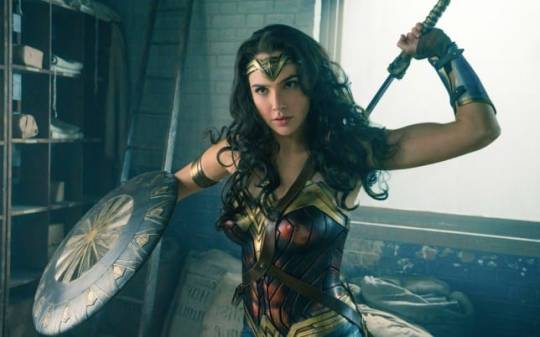
Hot Israeli women have been taking the world by storm lately, with more and more of them delving into acting and modeling. But why are these beautiful Israeli women so special? Is it their classiness, their long legs, or the fact some of them are exceptionally smart? As it turns out, these women offer more than meets the eye. From brains and beauty to entrepreneurship and class, these 25 sexy Israeli women are giving Western beauties a run for their money.



Born into a Jewish family, Gal Gadot first got her big break at the 2004 Miss Israel pageant. She became a beauty queen and got to take part in Miss Universe 2004 in Ecuador. But the world wasn’t ready yet for what this beauty could bring, so she kept her calm and fulfilled her duties. As one of many hot Israeli women who had to complete military training, Gal enlisted as a combat instructor in the Israel Defense Forces. At the same time, she was working on getting her education, studying law and international relations. Then, 2009 came, and Gal got a role in Fast and Furious as Gisele, making her a well-known face in the movie industry. Her most significant movie role so far was in Wonder Woman. It has presented her to a whole new legion of fans and let her top lists of sexy Israeli women all around the world. The sequel to Wonder Woman is going to come out soon. In the meantime, Gal is keeping busy with ad campaigns and collaborating with directors such as Kenneth Branagh. It’s evident she’ll stay in the limelight for years to come; with that gorgeous face and a humble yet dazzling smile, who would mind watching her on the silver screen?
Bar Refaeli
Model, Television Host, Actress, Entrepreneur

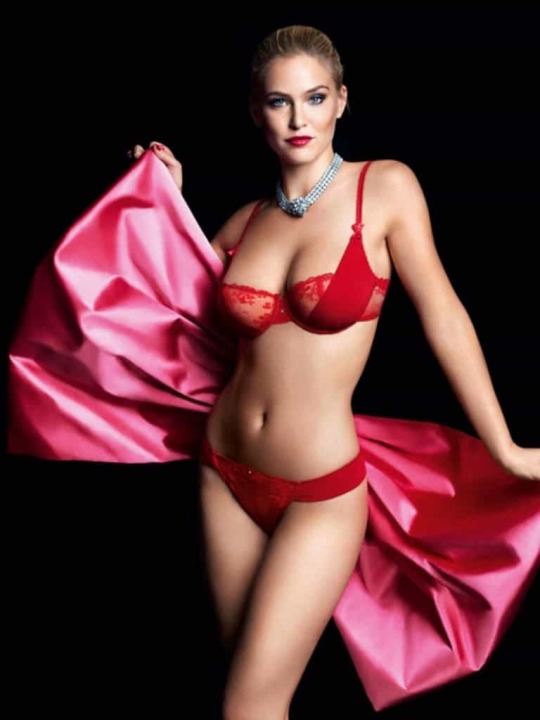
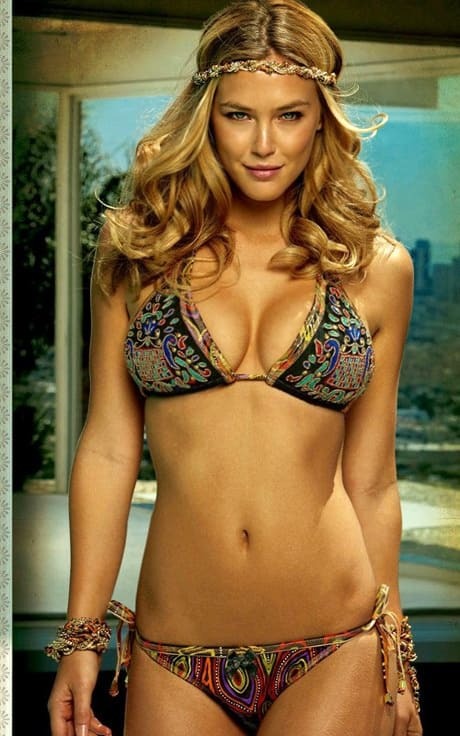
As a model, actress, and entrepreneur, Bar Refaeli is who every girl wants to be. She carefully juggles both her good looks and brains, never forgetting that she has a mission in this world. At the same time, it’s hard for men not to admire her beauty; she even kept Leo DiCaprio in a relationship for quite some time. As a model, Bar is famous for her 2009 cover of Sports Illustrated, topping the 2012 Maxim Hot 100 list, and various magazine appearances. What most people don’t know is that she’s a savvy businesswoman as well. Due to her investments in MyCheck and fashion brand Castro, she has been able to increase her wealth all on her own. But, Bar is no stranger to controversy. Her most famous fall from grace is the fact that she avoided military service in her own country. However, she maintains her solidarity with military women and shows her support on social media often. Additionally, she loves volunteering, frequently helping abandoned pets and sick children.
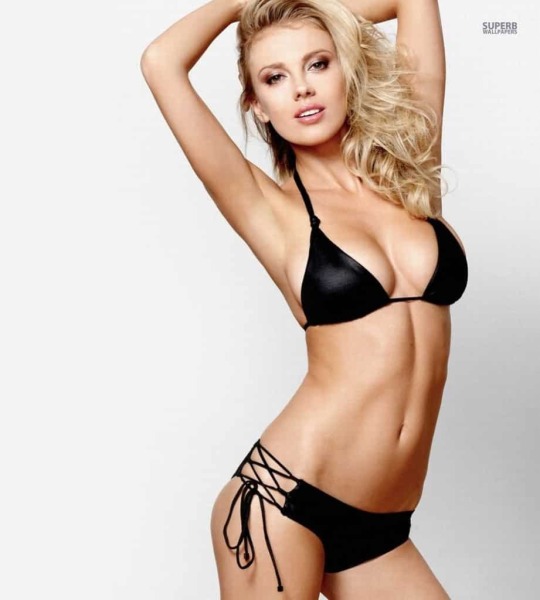


An Israeli-American actress, Bar Paly isn’t as famous as her namesake, Refaeli. However, she makes up for that by working hard on her career and gracing us with her presence in various TV shows. Bar started her career at the tender age of 17 and became a frequent cover girl. She appeared in GQ and Rolling Stone before transitioning into acting. Since 2003, she has acted in cult favorites such as How I Met Your Mother and The Starter Wife. Moreover, she has rubbed shoulders with the likes of Charlie Sheen in A Glimpse Inside the Mind of Charles Swan III and Dwayne Johnson in Pain & Gain. She joins other hot Israeli women on this list because of the way she looks. With her golden locks and milky skin, she is every man’s dream. And with her career blossoming as we speak, we’re sure to meet her on the silver screen again.
Esti Ginzburg
Fashion Model



Since women in Israel have to complete military service, Esti also enlisted and later even showed her support for all those who don’t ignore the country’s law. However, her modeling career didn’t start after that. She actually took part in a milk campaign at the tender age of eight, and since then, has been modeling for various famous designers and brands, such as Tommy Hilfiger, Pull and Bear, and Burberry. With her luscious golden hair and a figure to die for, Esti Ginzburg is one of those hot Israeli women that have a fantastic career before them. This model has already shown how well she can pose for the camera by appearing in Sports Illustrated Swimsuit Issue. Moreover, she has revealed she’s not afraid of working hard to achieve her goals.
Moran Atias
Actress, Model
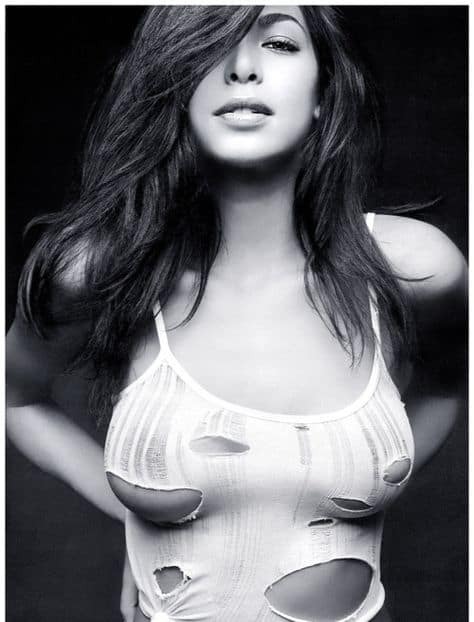

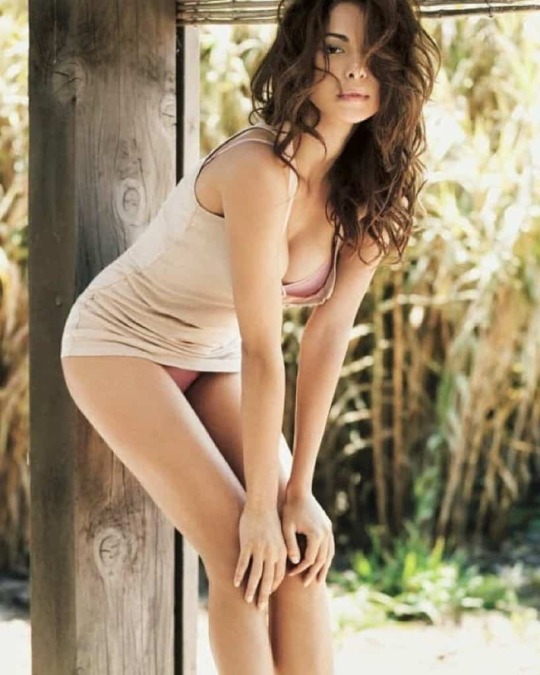
As one of the most beautiful Israeli models in the world, Moran Atias joins the ranks of other hot Israeli women on this list. With her dark hair and warm eyes, she’s every brunette-loving guy’s dream. But, Moran has also shown she’s a talented actress and model. Her most notable works include Land of the Lost, Mother of Tears, Third Person, and Crazy Eyes. She has also delved into TV acting, appearing in The Resident. Little do people know, though, that Moran was discovered quite early on and became a model for Roberto Cavalli. We’re not surprised given her figure and ability to work the camera just right. However, we’re glad she has decided to grace not only the runway but the silver screen as well.


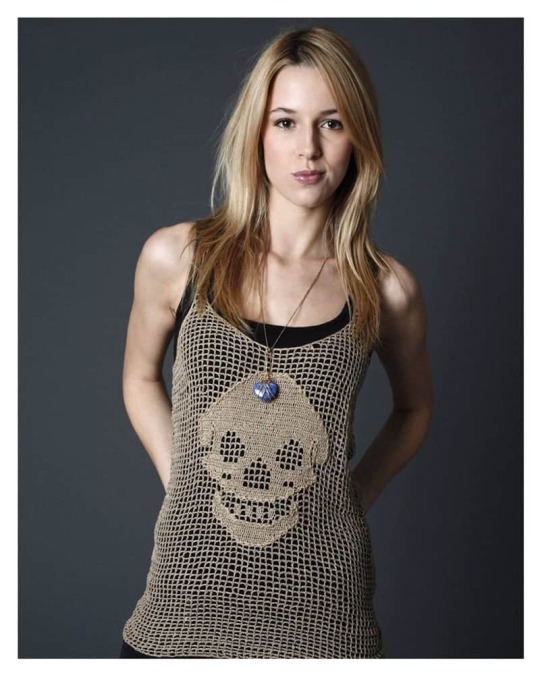
This little Libra shows just how much those who share her zodiac sign are capable of achieving in a short period of time. After leaving the military, Alona Tal decided to up her chances of becoming famous by doing commercials. Her big breakthrough came with Lihiyot Kochav, an Israeli movie. Since then, Alona has become a well-known face in the TV industry. She has appeared in various famous shows, such as Monk, Pretty Little Liars, and Ghost Whisperer. Most notably, she played Veronica Mars’ friend and Jo Harvelle in Supernatural. Right now, Alona is a doting mother and wife who is slowly but surely building her Instagram following and advancing her career. Don’t think her career is on permanent hold — we’ll be seeing more of Alona quite soon.
Odeya Rush
Actress, Model, Filmmaker
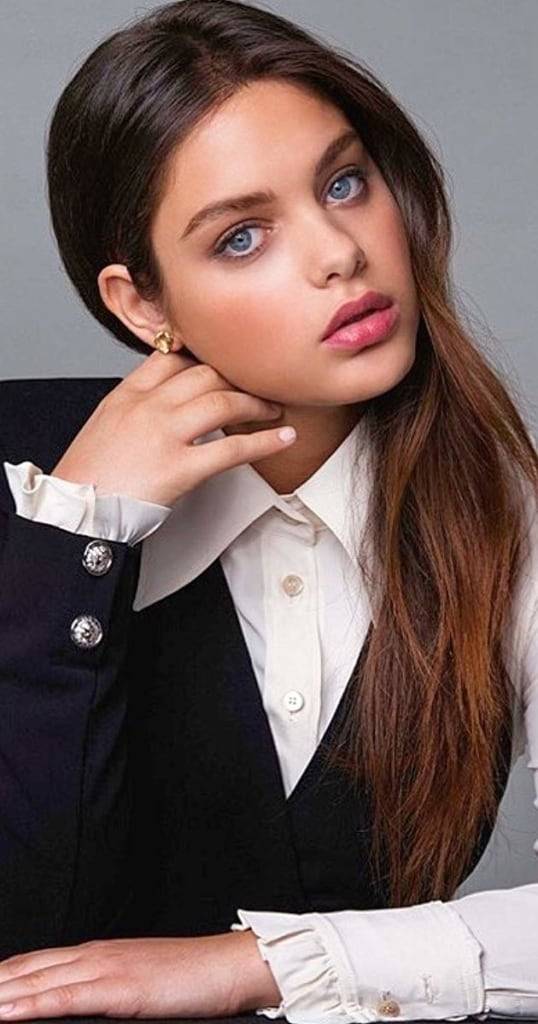
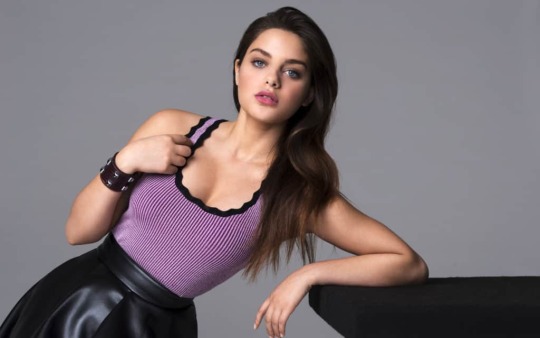
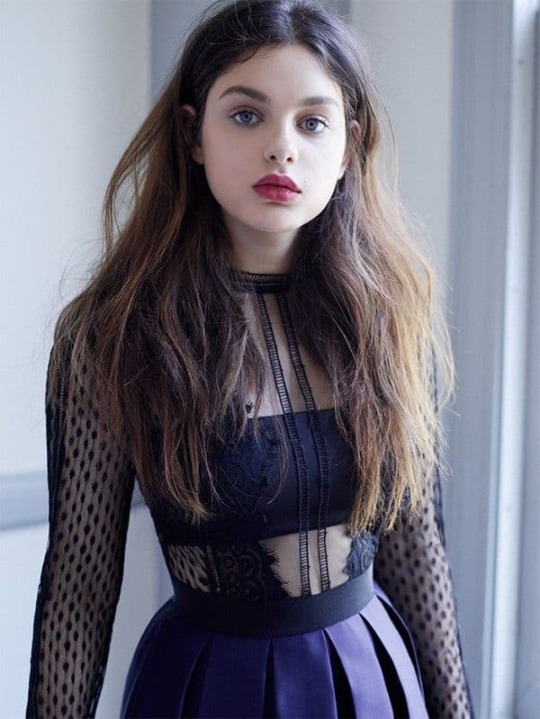
Have you heard of Odeya Rush? You must have, as she’s one of the up-and-coming actresses everyone should be on the lookout for. What’s more, she’s a part of the hot Israeli women’s club with her angelic eyes, dark hair, and exquisite figure. Although quite young, Odeya has already made a name for herself. With 516 thousand followers on Instagram, a role in Netflix’s Let It Snow, and even a part in Oscar-nominated Lady Bird, she’s on her way to becoming the new Natalie Portman. But, Odeya has also done modeling campaigns for Gap, Guess, and Tommy Hilfiger. As such, it’s safe to say she has shown how versatile her career can be — and how much she has to offer the world.
Natalie Portman
Actress, Filmmaker
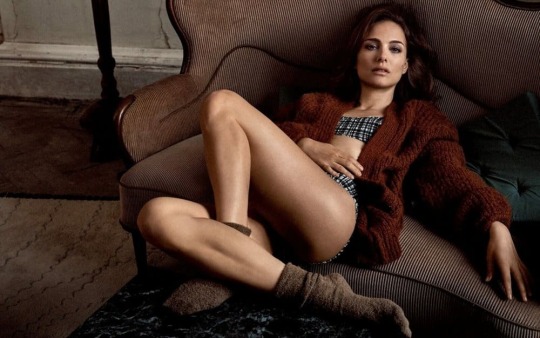


As the reigning queen of hot Israeli women, Natalie Portman is the most famous actress on this list. A blockbuster favorite and Oscar winner, she has shown multiple times how talented she is. And let’s face it — her beauty is only becoming more apparent with age. As the star of Léon: The Professional, Natalie began her career at the age of twelve and later moved on to various box office hits, such as V for Vendetta, Thor, and No Strings Attached. Her fans loved her in Black Swan, and so did the Academy. Yet, we love her for breathing life into Padmé Amidala and becoming a part of the Star Wars universe. Now a mom of two, Natalie is keeping busy with ad campaigns for brands such as Dior and movies like Lucy In the Sky. But, this beauty is not afraid to show off her brains either. She’s a Harvard graduate and an advocate for animal rights, not to mention an anti-poverty and #MeToo activist.
Agam Rudberg
Actress, Model

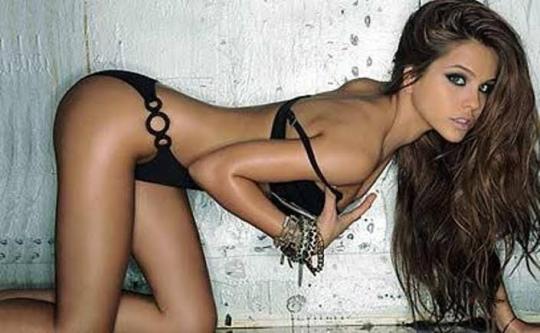
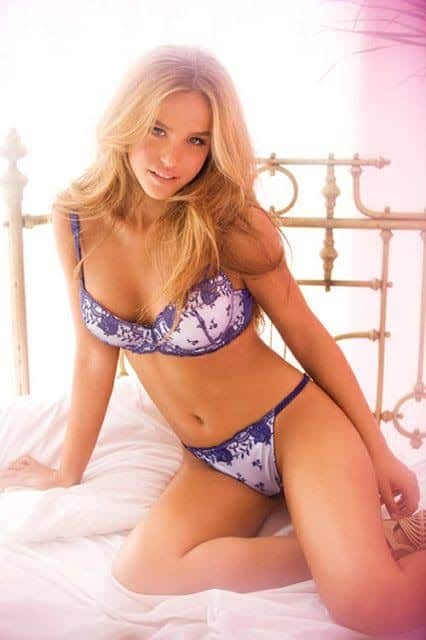
Although not as famous as some other hot Israeli women on this list, Agam Rudberg is a beautiful face that has shown her talent time and time again. Primarily working in Israel, she has graced TV shows such as Ahava Me’ ever Lapina and Split. Her most recent role was in Temporarily Dead, a medical drama. With 374 thousand followers on Instagram, a smile that could brighten any day, and an eerie resemblance to Bar Refaeli, Agam is doing quite well in her career now. Her country adores her not only for her good looks but her morals as well. She has openly criticized her lookalike for refusing to enlist in the military, saying she ought to have tried at least.
Maria Domark
Model, Internet Celebrity
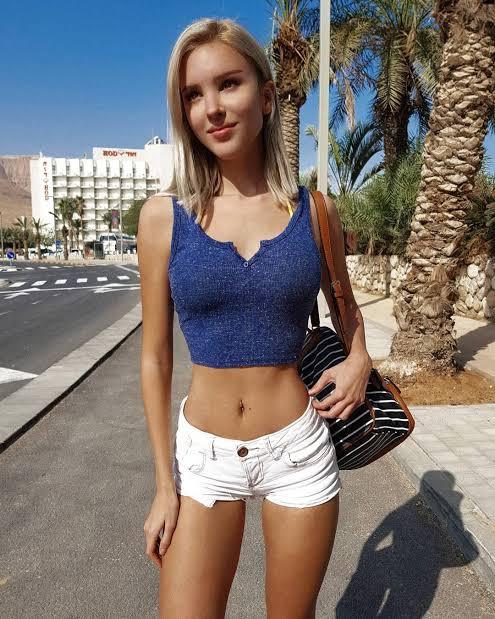
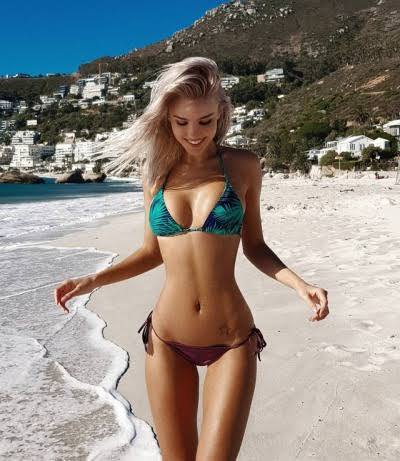

What can we say about Maria Domark? A popular model from Israel, Maria has amassed an extensive following on Instagram. More than a million people watch her every move and wait patiently for photos of her beautiful face. But, apart from serving good looks online, Maria is working hard on her budding modeling career. With an hourglass figure, full lips, and blonde hair, she is a sought-after face for many brands and is currently modeling for ITM. While her career is advancing, though, Maria is working hard on branching out. She even has a single on her YouTube channel, which she made in 2019. Perhaps a singing career is in the cards for her, as well?
Rotem Sela
Model, Actress, Television Presenter



With a degree in Law and Business Administration and experience as a clerk in the IDF, Rotem Sela is one of those hot Israeli women that has shown she is a smart cookie as well. Despite her good looks, she doesn’t allow to be seen as just a model. Her experience speaks for herself, and today, she is an actress and a political and LGBT advocate. Rotem is famous for her role in Beauty and the Baker and for putting Israeli film and TV industry above Hollywood’s bright lights. She maintains that she always wanted to succeed in her home country. With many roles under her belt, it’s easy to conclude that she’s one of Israel’s most prosperous actresses.
Shlomit Malka
Fashion Model, Television Host

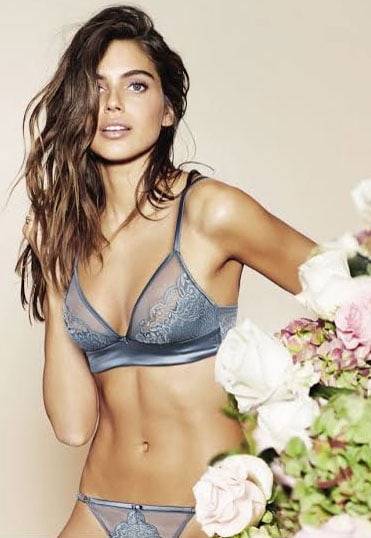

With Moroccan and Russian descent, Shlomit Malka joins this list of hot Israeli women as a blue-eyed model who has graced many international campaigns. She is mostly famous for her work as a model but has also shown her talents as a television host. During her career, Shlomit has collaborated with L’Oreal, Maybelline, Chanel, and Armani. She has also appeared in magazines such as Marie Claire and regularly posts her work and what she’s up to on Instagram. In 2013, she was also one of the highest-earning Israeli models. However, her career could have ended quite suddenly after her 2017 accident. She was in critical condition and even in a coma. Luckily, she pulled through and continues to dazzle us with her natural beauty.
Yarden Harel
Television Host, Photographer



Yarden Harel is a popular model who has, during her career, branched out into other fields in order to show off her talents. Most notably, she was an entertainment correspondent for Rokdim Im Kokhavim and Zinor Layla and even served as a backstage host on The Voice: Israel. Right now, though, Yarden is putting all her efforts into her lifestyle blog and showing off her photography skills on Instagram. With more than 280 thousand followers, her content appeals to younger audiences and those who appreciate quality, beautiful images. Of course, it helps that Yarden is still a natural beauty who’s not afraid to show off her smile. What’s more, she hasn’t lost that X factor that jump-started her career!
Neta Alchimister
Model, Swimwear Designer, Social Media Star

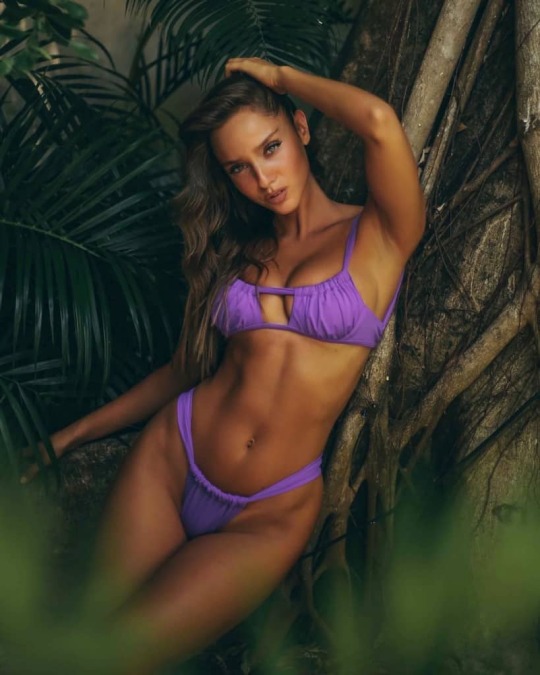

With a huge Instagram following (1.6 million), Neta Alchimister is a social media star, model, and entrepreneur. She is most famous for her modeling campaigns for the brand Castro, as well as her own bikini line BaNaNhot. Neta was quick to start her career after completing military service. After being discovered at 15, she has been working hard on making a name for herself, appearing in Blazer’s swimwear edition and often collaborating with Anna Zak, another Internet personality. To us, it seems Neta is one of those hot Israeli women that has fully embraced social media and is using it to her advantage. Luckily, we’re able to marvel at her good looks every day and keep supporting her with our likes and comments.
Yael Shelbia
Fashion Model, Actress
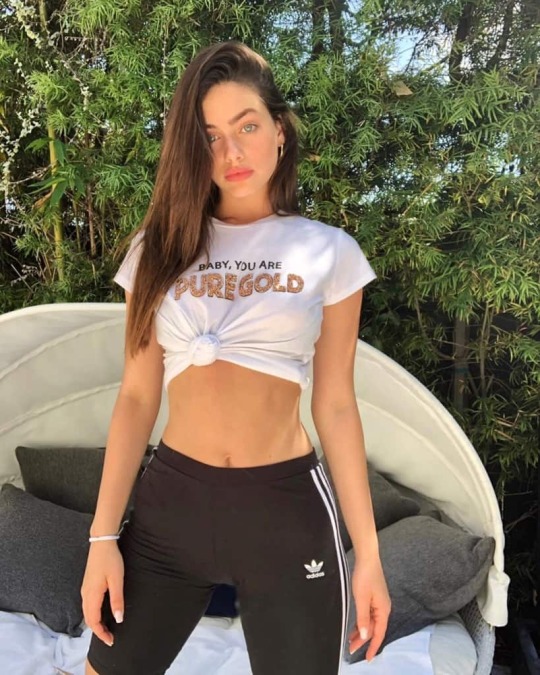
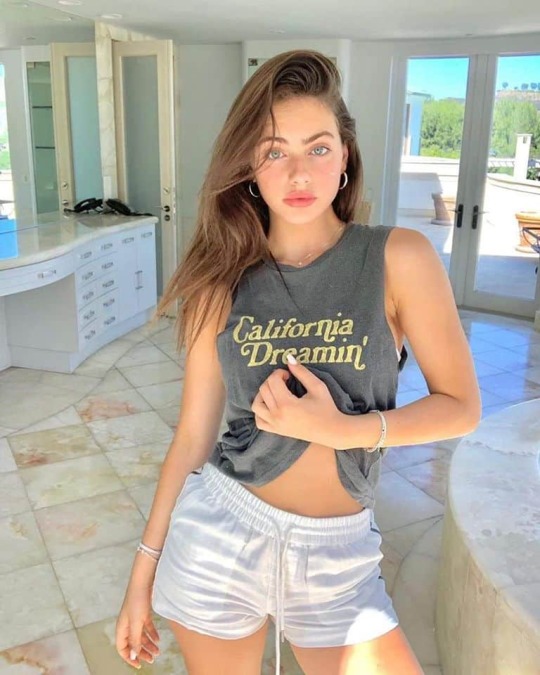

Her career is still blooming, but Yael Shelbia has already shown her modeling talents to the world. She’s well known both in Israel and internationally due to her Instagram and various ad campaigns. Most notably, she was one of the faces of KKW Beauty in 2018. Right now, Yael is slowly but surely working on her career as a fashion model. After getting discovered on Germany’s Next Topmodel in 2017, she has become a sought-after face with many agencies vying for her attention. Still, she’s young, and we probably haven’t even seen a fraction of all her talents. According to her Instagram, she may even branch out into acting soon.
Tal Berkovich
Actress, Writer, Fashion Model
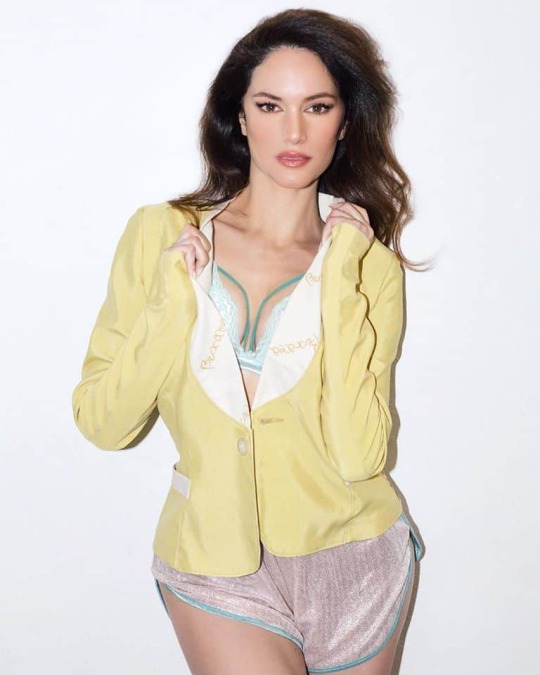
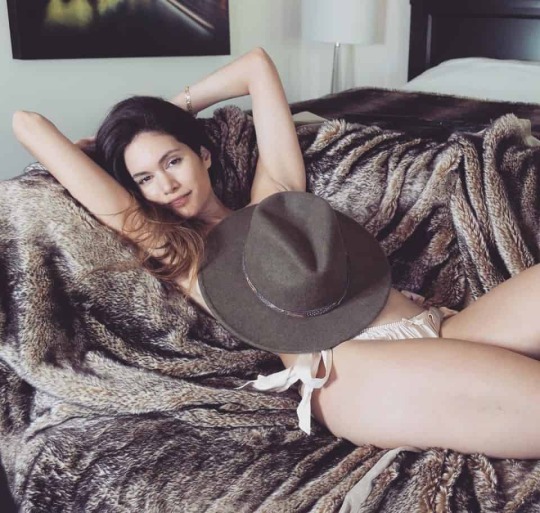

Born to a Romanian father and an Indian mother, it’s safe to say Tal Berkovich has a type of beauty that could easily conquer the whole world. Her unique decent gives her the facial features most modeling agencies are after. Thus, it’s no surprise to see she has done various lingerie and sportswear campaigns. Yet, Tal is also an actress and a writer, not to mention a trained ballerina. In fact, she was the youngest member of the Israeli National Ballet. Right now, Tal is doing more photoshoots and showing off her camera skills on Instagram. Some even say she resembles a young Cindy Crawford with her long brown hair and a killer body. Fortunately, she isn’t going anywhere any time soon, so we just have to keep an eye out for her new projects.
Dar Zuzovsky
Actress, Model


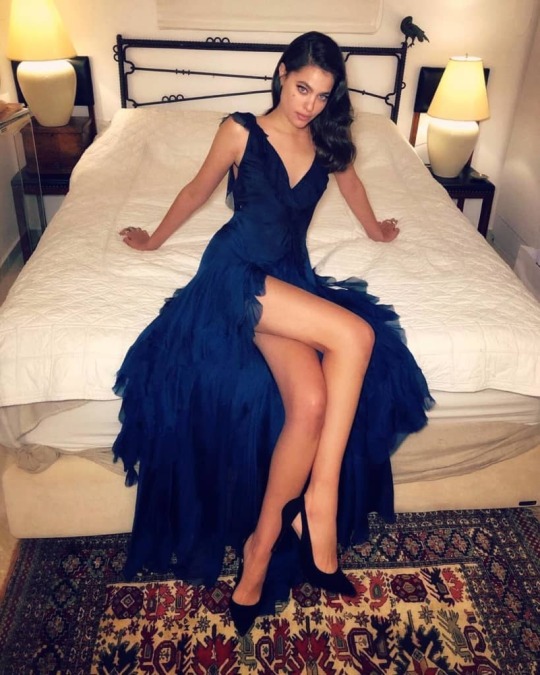
You have probably seen Dar Zuzovsky before; her beauty has landed her not just a spot on our list of hot Israeli women but multiple campaigns with brands such as Urban Outfitters and Sephora. Starting her career as a model at the age of 15, Dar quickly rose to prominence and has even become an actress in the meantime. As far as Hollywood fame goes, Dar still isn’t as well known as Natalie Portman. However, something tells us she still hasn’t shown us all her acting talents. Still, from her appearances in Beauty and the Baker and Papa, it’s clear Dar is able to carry roles effortlessly while at the same time looking as magnificent as ever. The future seems bright for Dar, as her next movie, Harry Haft, includes the likes of Danny DeVito, Peter Sarsgaard, and Ben Foster. Yet, we wouldn’t bet on her quitting modeling forever. After all, with a face that even graces a mural in LA, it would be quite a shame not to see her in magazines!
Yuval Scharf
Film/Television/Theatre Actress, Model



As a successful movie actress, Yuval Scharf is making a name for herself internationally. This red-headed beauty is honing her acting chops one role at a time, taking all acting difficulties in stride and making the best of them. Of course, Yuval wouldn’t be on our list of hot Israeli women if she didn’t have that X factor we all know and love. Her fiery hair, light-colored eyes, and exquisite bone structure make her a unique model. But, it seems Yuval is determined to make it in the movie industry — and honestly, she’s going places. She learned how to act in Nissan Nativ Acting Studio and is now branching out into non-Israeli production by appearing in a BBC show called McMafia.
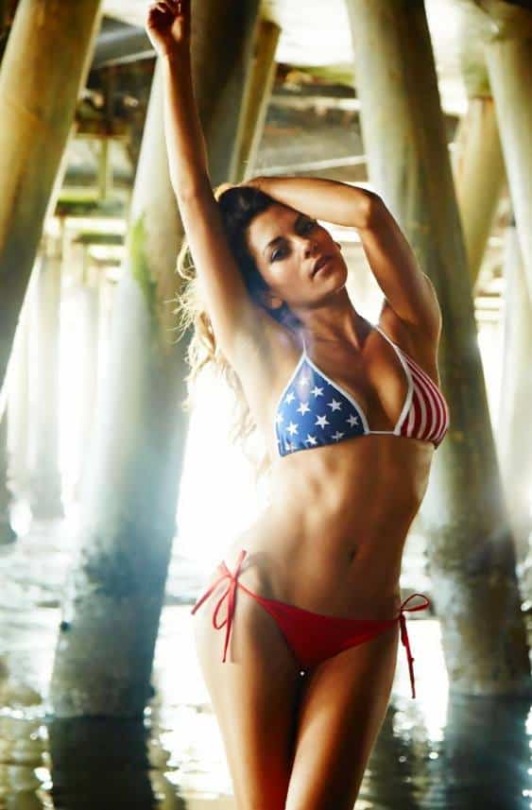
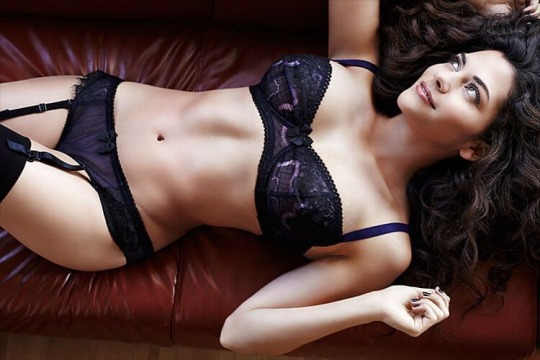
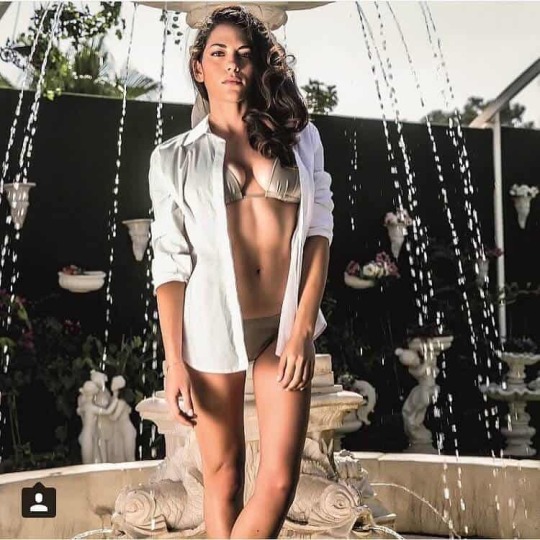
If you were to ask the next pick for our list of hot Israeli women why she became an actress, you’d get a surprising answer. In her childhood, Inbar suffered from asthma and had to use a nebulizer. To pass the time, she devoured movies and sought idols in the likes of Natalie Portman. For someone with her health condition, you wouldn’t expect her to come this far. Yet, Inbar has proven that she is not only a strong woman but a talented one as well. She had a lead role in Imposters and appeared in Lucifer and Prison Break. Therefore, we can expect to see more of her in the following years, perhaps even on the silver screen!
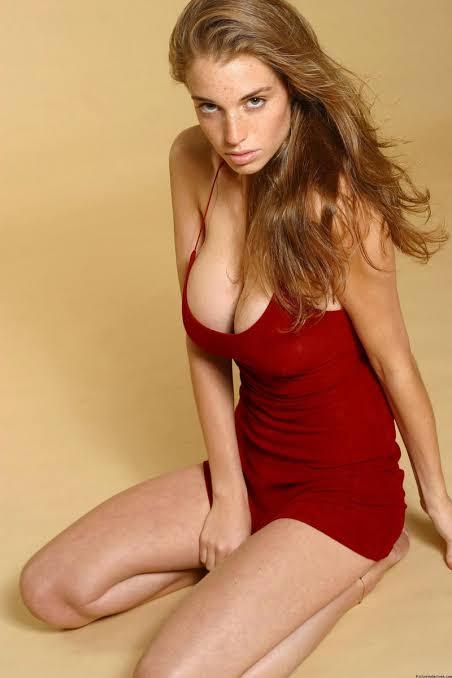

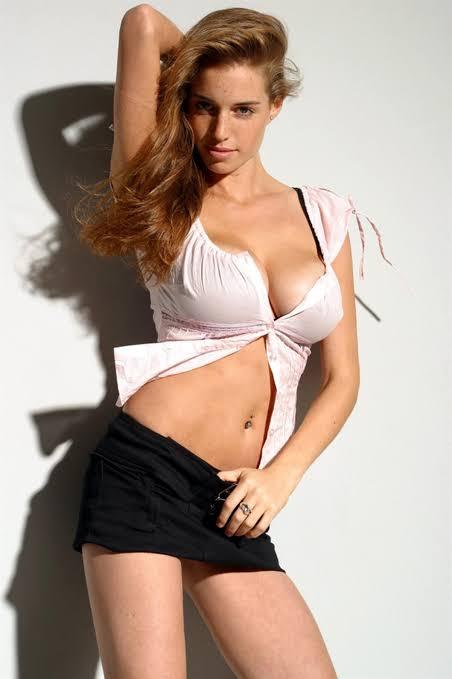
We cannot say that Amit Freidman is as famous as some other hot Israeli women on this list. However, her beauty is not to be underestimated. It has landed her plenty of modeling jobs, though she’s best known for fiery bikini pics. Still, Amit’s career, though not as substantial as, let’s say, Bar Refaeli’s, could take off quite soon. She’s slowly building up her Instagram following and regularly posting about her jobs. What’s more, she keeps it light and throws in a few cat pictures now and then — you have to appreciate a hot animal lover!


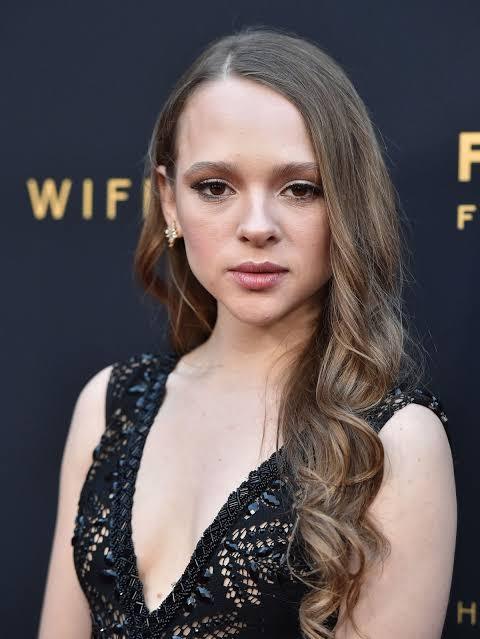
Shira Haas is a young star in Israel who already has quite a few hits under her belt. Even though she’s only 24, she has managed to act alongside actresses such as Jessica Chastain and Rooney Mara. Furthermore, critics loved her acting in Princess — you could say that role essentially put her on the map. However, her doll-like features, long shiny hair, and a stare that could touch even the coldest heart are what has made us include her in our lineup of hot Israeli women. There’s something about Shira that’s so natural yet almost ethereal. Her hair has a type of warmth that’s not that common among beautiful Israeli women, while her smart gaze tells you that she’s more than a pretty face.
Roni Meron
Actress, Singer, Musician, Model, Host

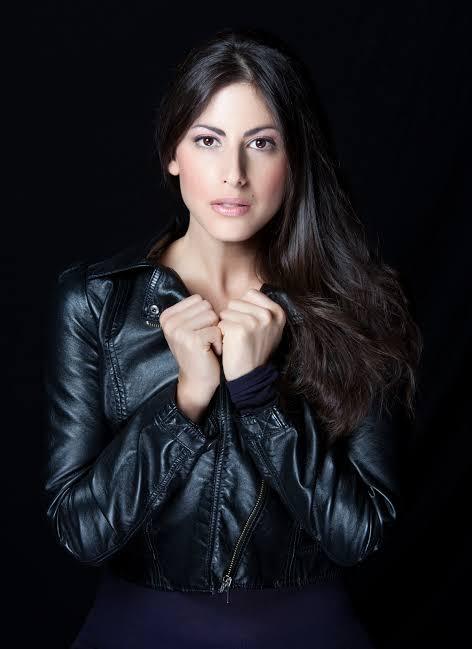

Roni Meron could definitely give Cindy Crawford a run for her money. However, it seems this beauty has switched to singing and songwriting, as she hasn’t acted in anything since 2015. But don’t feel bad for Roni — her career is still on the rise. With her magnificent voice, a premium record deal could be in the future. In fact, she was even offered a few girl group deals when she was younger. Nevertheless, knowing what that would mean for her future, she turned them down and opted to finish high school. As one of the most obscure hot Israeli women on our list, Roni is mysterious but wonderful to look at. Hopefully, she’ll continue appearing in print and on TV, giving us a reason to pay more attention.



A talented actress, no doubt, Hada Yaron is an up-and-coming star that has done something most hot Israeli women haven’t been able to. She won the Best Actress award at the Venice Film Festival, becoming the first Israeli to achieve such success! But she deserved that award fair and square, as her performance in Fill the Void left everyone in awe. What’s more, she didn’t stop there. Since then, she has appeared in Felix and Meira and Mary Magdalene. Most recently, she acted in Troppa Grazia, which was screened at the 2018 Cannes Film Festival. As a natural beauty, though, Hadas is gaining in popularity all around the world. In the 21st century, she’s unique with her sincere eyes and a lovely figure. Plus, since she has already shown her many talents, we could even say that she ought to become a fixture in a lineup of some of the best Israeli actresses ever.
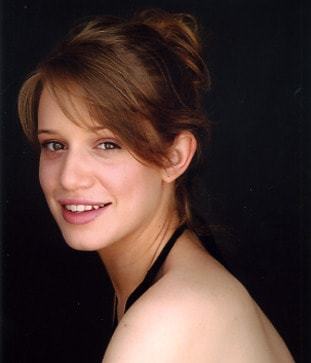


Born in 1989 in Jerusalem, Daniella Kertesz can boast about rubbing shoulders with famous actors such as Brad Pitt. She played Segen in World War Z, as well as Onie in AfterDeath. That has allowed her to become popular in Hollywood, with more promising roles to come. However, Daniella actually started her career quite early. When she was about to start ninth grade, a casting director offered her to audition for a TV series. She got the part and became a truly lucky girl, playing Noa Sperling in Reds. After a few other small roles, Daniella got her big break with Ha-Emet Ha’Eroma. She also appeared in Loving Anna and Autonomies. But, her acting experience isn’t why she’s on our list. Daniella joins other hot Israeli women because of her exquisite beauty and fiery hair. With her bright smile and classical features, she’s the epitome of an Israeli goddess. Hopefully, Hollywood catches up with her and gives her more roles so that we can enjoy not only her looks but her talent as well.
Yaara Benbenishty
Actress, Model
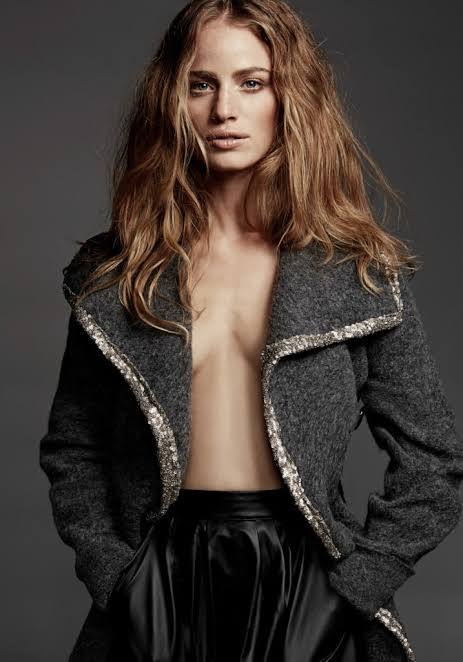
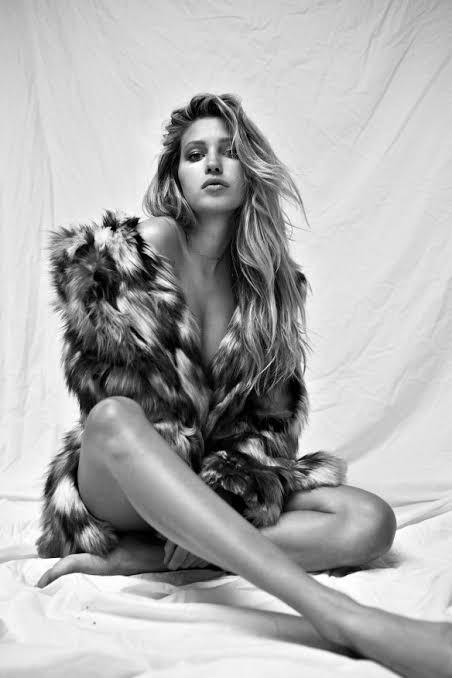
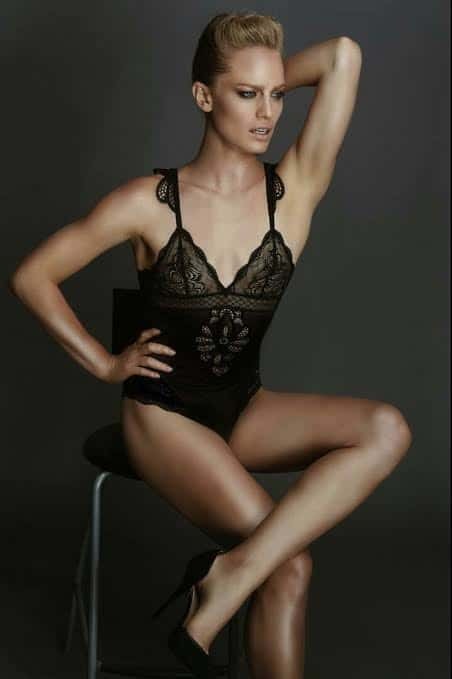
Slowly becoming a famous social media fixture, Yaara is a face to be on the lookout for. Not only is she a natural beauty, but she has also shown her acting talent over the years. Yaara has appeared in The Inheritance, Oboy, and Fauda, showing everyone she can be anybody on the screen. Furthermore, she’s working on becoming a true influencer, with almost 100 thousand followers. S he often does ad campaigns for brands such as Fresh and shows her following how she keeps her figure in top-notch shape. Most notably, Yaara isn’t afraid to show her makeup-free face. Her beauty is famous in the beauty industry, which is why she even finds work as a model. However, we feel Yaara is more inclined toward social media and movies. Luckily, it seems she could become the next big thing, as she already has another movie in the pipeline, Frankie’s Baby.
Anna Zak
Internet Personality, Model, Singer



Read the full article
4 notes
·
View notes
Text
Sacrifice Analysis
Close your eyes now time for dreams
Death is never what it seems
Did the things you thought you should
All the things they said were good
This refers to Ozpin dying, but not being permanently dead like everyone thought and reincarnating. It also says how he did what he thought was good and what people said was, implying that not all of it was in reality, which is something that Team Rwby and CO find out in Volume 6. This hits Oscar the most, considering how he is basically destined to have his body taken over, so he’ll indirectly be responsible for doing similar, if not even worse things for the greater good.
All your faith in ancient ways leaves you trapped inside a maze
Take the lives of those you need
Sow the death then reap the seed
Reap the seed!
Ozpin doesn’t chance his methods much overtime. He believes how he’s always done things is right, like him keeping secrets from everyone, no matter how close to him they are, which has led to a lot of Volume 6 and 7′s conflicts. He also takes over people’s bodies, which is an example of him literally stealing lives, unfortunately including Oscar’s as well. This also refers to all the huntsmen and Ozpin’s other allies who get dragged into everything. They all enter the fight and many don’t make it out alive, because it is too much for him, but the fight continues on, because it has to, or else all of humanity will die.
Born an angel heaven sent
Falls from grace are never elegant
Ozpin was given a chance to save humanity by the God of Light when he died, but he did many things that some people saw as wrong and cruel while trying to do the right thing, and he started to do this more frequently as time went on.
Stars will drop out of the sky
The moon will sadly watch the roses die
This refers to the moon shattering and possibly Summer Rose’s death, which was probably a result of his cause.
In vain
lost, no gain
But you’re not taking me!
This probably refers to multiple characters. It can refer from anyone to Raven, Ruby, Oscar, Cinder, etc. They are all saying how others died as a result of Ozpin’s actions, but refuse to meet the same fate as many others before them.
You can’t have my life
I’m not your sacrifice
You can try, but I’m free and you won’t conquer me
I won’t crawl, most of all, I won’t fall for you
The characters are refusing to die for Ozpin’s cause and they will not let him sway themselves into blindly following his orders
Show them gods and deities
Blind and keep the people on their knees
The characters are standing up and making sure that no one can overpower them by weakening any who dare to try, and they do this in order to make a point
Pierce the sky, escape your fate
The more you try, the more you breed hate
Ozpin never actually dies and he tries to avoid telling people the full truth as much as he can. However, as we learn, this backfires on him heavily, turning the entire group against him, making his fears come true, and encouraging him to keep hiding the truth and repeating other past mistakes
And lies
Truth will rise
Revealed by mirrored eyes
This refers to Ruby using Jinn to ask the question that exposed the truth he had kept hidden for so long
What if all the plans you made were not worth the price you paid?
Even with the lives you stole, still no closer to your goal
This is the characters mocking him by saying that even with all his efforts and things he’s sacrifices, he’s still not closer to saving humanity. This is also some of the self-doubt he has, since he is no where to close to certain that he will succeed. A part of him feels like it was all for nothing and that people died pointlessly for his cause, but he still hopes that it not true, since the possibility of success is what keeps him going
You can’t have my life
I’m not your sacrifice
You can try, but I’m free
And you won’t conquer me
I won’t crawl, most of all
I won’t fall for you
Once more, they refuse to die and fully devote themselves to his cause like many others.
I personally believe this is Cinder’s song since an ost version of this plays when she’s on-screen occasionally, and it partially explains her desire for power and foreshadows why she has a grudge against him, so I was doing my best to explain from that viewpoint. I don’t hate Ozpin, but I do agree that he should have told them more. I did my best to explain from the possibility of this being told from multiple characters, protagonists and villains alike, which is why my opinion of Ozpin seems jaded, even though I actually like him. I hope I gave a good analysis!
4 notes
·
View notes
Text
Way Too Early Predictions: Oscars 2020
Hello. It’s me, again.
I know we’re still digesting Hollywood’s Biggest Night and reminiscing about the past few months of Awards and Honors (just me....?). But it’s time to put that behind us. We’re looking towards the future now.
I always enjoy award season, even if it is disappointing and I’m left bitter and defeated. But guess what? We always have next year to look forward to. And now we’re going to take a sneak peak at what may be on the horizon for 2020.
It’s time...for my Way Too Early Oscar Predictions
During the Oscars this year we were treated to a nice little teaser for Martin Scorsese’s latest film, the Irishman which will most likely be competing next year. I’ve been following this film since it was announced, ready for the Oscar potential that comes with any Scorsese film. Right now, all that’s listed for a synopsis on IMDB is, “A mob hitman recalls his possible involvement with the slaying of Jimmy Hoffa.“ I mean...sign me up right there. The cast also features Oscar veterans, Al Pacino and Robert De Niro, as well as Joe Pesci and Harvey Keitel. It’s been a hot minute since Scorsese’s last Best Director win and even his last nomination. The only thing that slows this train down for me is the fact it’s been scooped up by Netflix. I still don’t think Netflix movies should be considered for Oscars and I absolutely hate watching movies at home that should be seen in the theater. Unless Netflix releases this into theaters and acts as a distributor, I may not be as hyped about this when it’s actually released as I am now. But...I’m still super into this and wouldn’t be at all surprised if it becomes an award show darling.
Potential nominations: Picture, Director, Acting, Screenplay
Speaking of another film starting it’s campaign early...
The first full trailer for the Elton John biopic, Rocket Man just dropped this past week and you know after the success of Bohemian Rhapsody they’ll be setting their sights on awards. Taron Egerton seems a high prospect for a Best Actor nomination and I’d love to see this nominated for costumes (the same way I wanted Bohemian to be nominated...iconic looks!). I’m super excited about this one since I just caught Elton on his last tour and, to be honest, I love any movie about musicians (but don’t classify them as musicals!). Several articles have already claimed Taron has started his campaign for award seasons (after he showed up to sing at Elton’s annual Oscar party), and honestly why shouldn’t he? The only foreseeable problem (besides the possibility it could always be terrible...we’ve only seen the trailer) is that it comes out in May. In entertainment terms, it’s practically an eternity between May and true Oscar season. I mean, A Star is Born came out in October (although it premiered in August at the Venice Film Festival) and lost steam so fast, by the time January rolled around it seemed like a distant memory. I’m not sure this could pull off a Best Picture nomination. It will probably depend on what else is nominated and how many films they decide.
Potential nominations: Picture, Acting, Screenplay, Costumes, Cinematography
It’s not a biopic, but another film based on a true story coming in hot is A Beautiful Day in the Neighborhood, a film featuring Tom Hanks as the iconic Mr. Rogers. It’s not a biopic about Rogers’ life, but rather a true story revolving around his friendship with journalist Tom Junod. I’m personally glad it’s not a biopic or biography-type movie, since we already had the phenomenal documentary released this past year. Tom Hanks has already started generating Oscar buzz even though all we’ve been granted is a single photo of him in character. That’s all we need, though! Tom is the perfect choice to play the kind and gentle Rogers and a Best Actor nomination is probably on the horizon. It’s also directed by Marielle Heller who helmed one of my favorite films of 2018, Can You Ever Forgive Me. I sincerely hope the Academy fixes their screw up of 2018 and nominates her next year. I’d like to say it’s a lock, but since she’s a woman, who knows (yes I’m throwing shade at the Academy. I’ll do it all day)? With a November release date, they definitely have awards on the brain.
Potential nominations: Actor, Director, Screenplay
The film that I’m personally the most excited for is Quentin Tarantino’s Once Upon a Time in Hollywood. I love Tarantino films and really just Tarantino in general. When the announcement about this film was initially made, it mentioned the Manson murders and, despite my love for Tarantino, I will admit I rolled my eyes and thought “not another one.” But the synopsis has shifted, now listed on IMDB as “A faded TV actor and his stunt double strive to achieve fame and success in the film industry during the final years of Hollywood's Golden Age in 1969 Los Angeles” with Wikipedia mentioning all of this taking place during the same time as the Manson murder. So now I’m more intrigued. Where does Sharon Tate fit in? How do they Manson murders come in to play? Oh my goodness I already can’t wait for this film. As if that wasn’t enough, our main leads are two former Hollywood “It” men, Brad Pitt and Leonardo DiCaprio. As far as I can remember, the two have never starred in a film together which is insane. The film also boats a cast that includes Margot Robbie, Dakota Fanning, Al Pacino, and Kurt Russell. With all those names, it seems likely that someone will land an acting nomination. There’s probably going to be stiff competition, but I’d love if Leonardo snagged another Best Actor (or even Supporting Actor) nomination and it’d be great to see Brad Pitt maybe even win. Hollywood loves Hollywood and they seem pretty fond of Tarantino, so I wouldn’t be surprised with a Best Picture nod and maybe even a Golden Globe win. Tarantino has also won the Original Screenplay Oscar twice, so a nomination seems almost given. This also marks his ninth movie, which if he sticks with the plan, will be his second to last before his retirement (or long hiatus. I have a hard time believing he’d be gone for long). If he starts playing that up again, it could help boost him to a nomination, if not a win.
Predicted nominations: Director, Acting, Screenplay,
Some other titles being tossed around...
Harriet, about the life of Harriet Tubman, has started gaining steam. I haven’t read too much about it yet, but given the powerful figure it’s about, it seems ripe for Award Season. Predicted nominations: Best Picture and Best Actress.
The Report made quite the splash at Sundance. I have mixed feelings, since I usually find any films about our government not directed by Adam McKay to be boring and dry. Listen, we live with the government, we don’t need to be reminded of what’s going on. But this one does have two of my favorite people, Adam Driver and Annette Bening, and started generating Oscar buzz as soon as its premier was over. I’d die if Adam Driver makes another trip to the Academy Awards and I don’t know what I’d do if he wins. Annette Bening may be our Glenn Close of next season, as she has also never won an Oscar and it could be her time. Predicted nominations: Picture, Actress, (supporting) Actor, Screenplay
Little Women will be Greta Gerwig’s next feature film, following on the success of Lady Bird, which saw it’s own Oscar acknowledgement (although it left empty handed). I’ve never been a fan of the story, but to be honest I’ve never read all of it. I’m giving this a chance since I love Greta and the cast includes her darling Saoirse Ronan and everybody’s boyfriend Timothée Chalamet, as well as Emma Watson, Florence Pugh (my favorite fresh face) and Meryl Streep (an Oscar staple). Could this be incredibly boring? Yes. But it could also be an award season favorite since it is a period piece. The Academy loves those.. Predicted nominations: Picture, Director, Screenplay, Costumes.
These are just some of the titles that have been thrown around so far. After my least favorite year for film in a long time, I’m looking forward to this new crop. Tarantino, Scorsese, Gerwig, a film with Adam Driver, and biopics abound! I’m so ready for 2019. Here we go.
#Oscars#Oscars 2020#the Irishman#Quentin Tarantino#Leonardo DiCaprio#Brad Pitt#Tom Hanks#Greta Gerwig#the Report#Adam Driver#Way Too Early 2020
5 notes
·
View notes
Text
VERSE: RWBY
“Make any dog jokes and I’ll kick you off the nearest cliff.”
He had been born in one of the nomadic tribes located in Anima but to the far east, in between the vermilion mountains and desert that had splashes of greenery here and there. He didn’t know his parents, but he knew that they were both killed with their tribe before he was miraculously found in the wreckage by another and taken in. His status as a Faunus mattered not to them, but some grew concerned with the look of his animal trait.
It reminded some of the old, old carvings in cavern walls up in the vermilion mountains that depicted hellish hounds and the souls they’d either calmly herd or aggressively drag by their teeth. Some thought that the Faunus could’ve come from creatures of old, no one knew for certain but it was a possibility in their mind. The tribes people weren’t so much afraid of Jack but afraid for him.
In the coming months, it was pure chance that a kind woman traveled near where their tribe had recently settled. She was a blessing and helped them when their chief pleaded with her to help hide the true nature of the child from others who’d mean him ill. The woman helped them, knowing exactly who might find some interest in a possible Hell Hound Faunus, and she used her abilities, her magic, to repress his true Faunus nature so he would be recognized as a wolf instead.
The tribes people thanked her, swearing to keep her secret safe and watched her depart, never to see her again. Little did they know that they had been helped by the Fall Maiden.
Jack grew up believing he was a brown wolf Faunus, learning how to hunt, trap and kill Grimm better than anyone at one of those fancy academies. But then, one day when he was 14 he felt pain like no other coursing through his body and he blacked out in front of the whole tribe. Waking up was unpleasant but when he looked at his family he could see things he couldn’t before. It was like their Aura but not, they all varied from person to person in color and appearance. It confused and scared him. His tail was different, no longer like that of a wolf but a longer one with curling strands of dark brown fur tipped in a red that reminded him of blood that nearly brush the ground when he stood up.
He asked the tribe, his family, what was wrong with him and many were reluctant but they eventually sat Jack down to explain to him what he was and why they hid it, as well as the how. Jack took it as well as any teenager could, but thankfully his anger didn’t color everything, with time he saw their perspective and forgave them because they were just trying to protect him.
The tribe speculated on what happened, the magic had been suppose to hold for so much longer. The wondered if something had happened to that kind woman who had helped them so long ago, if perhaps her magic had been tied with her life energy. They didn’t know how close to the truth they were with that.
It took time for Jack to get used to his new abilities that came with his true nature. Eventually he finally decided to venture out into the world, which made his tribe fret but they accepted it. They taught him as much as they could, about what to be wary and how to figure out if someone’s trying to swindle or hustle him before they saw him off.
He traveled around Anima for some time, stopping at Haven often, hunting Grimm and helping some people where he could. Jack learned a lot of new tricks in the city, like how to make quick money. He always knew that teaching himself how to pickpockets would come in handy. He’s an excellent hunter despite never having stepped foot into a huntsmen academy. Sometimes he even ventured over to Sanus to see what Vale and Vacuo had to offer.
Lately, however, he’s noticed how there seems to be an influx in Grimm and dark clouds loom on the horizon. There are a few rare souls he’s seen that look twisted and the people they belong to puts him on edge. Just what's happening in Remnant?
IMPORTANT TO NOTE:
Yes, I made Jack a hell hound Faunus, his one trait is his tail. It’s long, the fur is the same shade as his hair and the tip of it bleeds into dark red. He’s possibly the last of his kind, he doesn’t know and looking around for more hasn’t really given any results. Being what he is, he has a higher sense of smell, night vision (that all Faunus have), sharper hearing and he has a second sight. With that sight his eyes gain fey like glow that looks a little orange-red and he’s able to see people’s souls. It’s also very possible that he could hurt said soul, though he knows that he can touch it, but it is not something he ever wants to try if he can help it.
Jack’s semblance is called ‘Wild Card’, every day it’s something different. He could control fire one day, the next it could be cloning or speed, illusions. It’s always different but that’s not to say that they won’t eventually repeat at some point, he’s pretty sure it’s influenced by the people he’s around if a repeat happens and it’s completely random when he’s out in the middle of nowhere with only his shadow for company. His aura is red-orange. His weapon of choice are dual long knives.
His age differs, depending on things. Like if he’s part of Oz’s inner circle or if he ends up meeting one of the crew in Haven, since that place is a normal hang out for Jack. If he’s with Oz’s inner circle then he was eventually granted the choice to be able to take on a second form, that of a Hellhound, instead of the green glow is a red-orange glow and he’s big, like he could completely cover Oscar if he laid on him in that form. I don’t remember where the post is for this picture or I’d link the post instead.
The Fall Maiden who used her magic on Jack was the one before Amber was the Maiden, the spell held for so long as that Maiden had lived and when she died so did the spell with it.
#something different everyday but he hunts all the same « rwby. »#long post#I was suppose to write a different verse and then this came out instead
1 note
·
View note
Text
Every journey into the past is complicated by delusions, false memories and false naming of real events . . .Adrian Richt . . sp
In the Beginning----I started life in a small place called 'Bridge of Allan' in Scotland June 20th 1956. My parents were Margaret Joy Latimer (suicide at 27) and Derek Andrew James M. Apparently, my birth was very difficult and my father told me, much later in life, that they did not think I was going to make it. My mother suffered from some form of toxaemia possibly due to Rh difficulties which were also going to also impact me. This information is sketchy since my father was the only source of this information and he wasn't talking. My father told me much later in life that it was touch-and-go for a while for both of us. I wasn't named until it was clear that I was going to survive. My mother was apparently warned about having other children. Yet, she gave birth to Desmond Thomas in September 15th 1957 (committed suicide when 20) and another boy Kevin on June 20th 1960 (attempted suicide at 23). When they came home with the baby, Kevin Derek my mother handed me the baby and told me that since he was born on my birthday, “he was my birthday present and my responsibility.” I remember this scene so clearly, I actually remember where I was standing in the home and where my father was standing to my mother’s left and to my right. I took my responsibility very seriously. I could, and did, warm bottles, changed nappies [diapers], and washed dishes by the time I was five years old. It was like at five years old I became my brother’s keeper and a mother all in one. Desmond at this time was three years old. My mother was sad a lot and cried all the time. It was the beginning of the 1960s. But, then there was very little they could do for serious depressive mood disorders.
“When truth is buried, it grows, it chokes, it gathers such an explosive force, that on the day it bursts out, it blows out everything with it”....... Neil Zola....(sp)
“Education makes people easy to lead, but difficult to drive, easy to govern, but impossible to enslave.” . . . Henry Peter Brougham
The Slap-----I am not sure exactly when this event occurred but it was before I turned five years old and while my mother was alive. We were sitting in her and dad's bedroom facing the mirrored chest of drawers opposite the bedroom door. My mother was crying, but I can’t remember why. My father came into the room and they were arguing. I don't know about what. He slapped her on the face and I charged at him. He picked me up and threw me down on the bed. He later denied ever hitting her or throwing me on the bed. But if his version is the truth, why are my memories, even now, are so clear and vivid? I remember after he left that we both sat on the edge of the bed crying, me on her left side. I was on her right when he hit her. We sat and cried together. My mother cried a lot. I was very upset and to help me feel better she pulled out a small ivory-covered jewellery music box and she opened it up, up popped a small ballerina who turned to the music. Both of us sat there and cried for a long time and she had her arm around my shoulder. I have chosen to believe my version of the events that day. Part of the reason for this was my father, when I was 15, offered me a choice of two jewellery boxes, a larger wooden one and a small ivory-covered one. I picked the ivory music box and I told him at the time that I knew it had belonged to my mother, the other was his mothers. I asked what had happened to the ballerina in the white tutu. The box was still lined with the blue velvet I had remembered.
My Father’s Father----Apparently my father’s father was a lingerie sales man. I thought that he was some form of a carpenter for the longest time. I know nothing of my father’s family or his history. I believe he told me once that he was a child born late in his parents’ lives and when they died he was cared for by a much older spinster sister. To this day I know nothing of my father’s side or the mental health history that may have also been clear on his side. I do know he said he was raised by his much older sister and that his parents were not in this picture. The difficulty with trying to find out where mental illness originated in genes is often compounded by secrecy and missing relatives. In our family, it was clear that there was mental illness on my mother’s side from my mother and maternal grandfather. But this does not explain why ALL three of us siblings were mentally ill. To have this high a prevalence rate in three related siblings clearly indicated a dominant gene or recessive gene combination problem of some sort. Given this, I’m almost certain, that there was at least one-person who was not well on my father’s side of the family and could have been the source of the genetic ‘double whammy’. But I’m only guessing, however by now, it is a very well educated guess at this point. Having a hundred percent prevalence rate and, as of the date of this writing, a fifty percent mortality rate, it is clear that there must have been something wrong on both sides of the family. The risk should been, according to published medical information in 1995, less than % 30. The only logical explanation I have arrived at is mental illness in both sides of the genetic pools.
“Nothing fixes a thing so intensely as you wish to forget it”-----Michele DeMontagn . . .sp
The Cat in The Hat------Another memory of my mother while she was alive, was her teaching me how to read a Dr. Seuss book called “The Cat in The Hat” and sing Frere Jacques. You start grade one in Scotland when you are five years old. By that time I could read this book almost from memory. I have never had the chance to thank her for my love of reading or anything else for that matter. I read a lot now and always have, mostly text books and journal articles and anything else I get my hands on. Unfortunately, I was not able to gain as much understanding of what I was reading by every one else. I needed to read something about 4 times to get out of it a good reader who only required one reading, My reading helped me escape from life when I was a child. I still use it to help me through the rough times. I don't know what happened to the original copy of the book. It was probably thrown out like everything else was when we moved to Canada when I was eight and a half. In my 59th year I purchased a new copy to keep as a reminder keepsake. It is not the original but that is not the important part of the memory.
Sheets - - I have a very clear memory of playing in a fort made of bed sheets in the back yard. The sheets were yellow or white and they were hanging on the clothesline. But they made a magical place inside the fort. I do not know why this was important. I don’t know why this memory came into the fore front of my memory. I do know I still had my mother and thee safety of the sheets I can remember the feeling but I remember the feeling of safety and warm.
Wanting to Be Dead-----When my mother died I was devastated. I hurt so badly. I wanted the pain to stop. This is the kind of pain that is unbearable. This kind of trauma for anyone is hard. But when you are 5, I don't know if you ever recover. I think that the feeling of abandonment never leaves you. Apparently this is common. The trauma and loss never heals. It hasn't left me. I believe that it may be pushed below the surface but it never leaves. It seems to be just under the surface all the time. There is, I have discovered, a difference in wanting no longer to be in pain and truly wanting to be dead. Many professionals believe that mood disorders erupt in the late teens and early 20s mine clearly started with early symptoms, at least when my mother died. The kind of pain I felt was physical and emotional in the depth of my being. I know crying about it hurt my father so I only cried at night or when I was alone. All three of us kids were in the same room at night so I had to be quiet so I wouldn't wake my brothers. Desmond was in the lower bunk and Kevin was in the crib. My father heard me crying one night and came into the room. He told me that he was sad too but we couldn't be with her anymore. Even as a five-year-old I knew my crying was making things worse for my father. So I had to stop. I learned to hurt in quiet. He said I had to keep quiet or I would wake up my brothers. I was screaming in pain inside. My entire being was in pain and it almost never left me. I tried not to grieve publicly and to keep this pain inside along with the anger. Yes, I was angry too. I think. I wanted to die, but I couldn't. I had responsibilities too. I was responsible for my father’s hurting and my older brother’s sleeping, my younger brothers hurting. Kevin was going to depend on me now. He was my ‘birthday present’ and I would have to stay alive to take care of him. I had promised my mother. Now, when I think of the pain I was in I realize that I was depressed then. I was five, and I truly wanted to be dead.
“Children begin by loving their parents, as they grow older, they judge them. Sometimes they forgive them” . . . Oscar Wild
logic will get you from a to b but imagination takes you everywhere . . . Albert Einstein
Chips and Babies ----A clear memory of my mother was when she fed my baby brother Kevin ‘chips’. Chips are what we now call french fries in Canada. Back then, we made them at home and deep fried them in the ‘chip pot’ using slices of potatoes we cut into ribbons. When she gave them to the baby and us, she would bite the ends off all of them. I asked her once why she did that. She explained that she did it for two reasons. The first was to make sure that all of the sharp points were removed so we would not hurt our throats. The second reason was to make sure that none of them were too hot for us. She told me that it was important to remember not to feed little children like Kevin chips with sharp ends on them. Was this another attempt at preparing me for what was to come? It felt weird at the time and the memory is very vivid I can even remember where I was sitting at the table in the dining area. This memory is also rather interesting. As I write it, I realize that I like the sharp ends. Today whenever I eat chips I pick through the pile to find all of the crispy ones. I have never tied this together before now.
Swinging While We Walked----I have a clear picture of my mother and my Aunt Joan one day. We were going down the sidewalk to a larger department store. We were walking to the left of my gran’s store and I remember going into a large store with big red letters for its name. I think we were getting things ready for my Aunt’s marriage. My mother was on my right side and my aunt was on my left side and they had both of my hands. They would go 1-2-3 than pick me up by my hands or arms and swing me into the air. Every time I see parents do this with their children I see the picture and almost feel the experience. I’ve never forgotten this. It is weird what you remember of a very fragmented past. When I did some searching in Edinburgh on our 2001 visit to Scotland I could only find birth records that did not include my Aunt Joan being born to the Latimer’s. I have to do more research into the missing records
Snow-----I remember the fist time I saw snow. It is so clear. I was sitting in this great big armchair positioned at the picture window in the livingroom. My mother was on my right but I don't remember my brothers being there. She explained that we were so lucky to get snow at Christmas time. I sat there forever watching it all fall and felt warm and loved as she sat with me. Apparently, snow in the lower altitude places in Scotland was rare. I only remember this time and I shared it with my mother. I knew that she loved me but I don’t hear I love you all the time and I did not hear it from my father. It seemed like my grandfather was the only person who said I love YOU to me.
0 notes